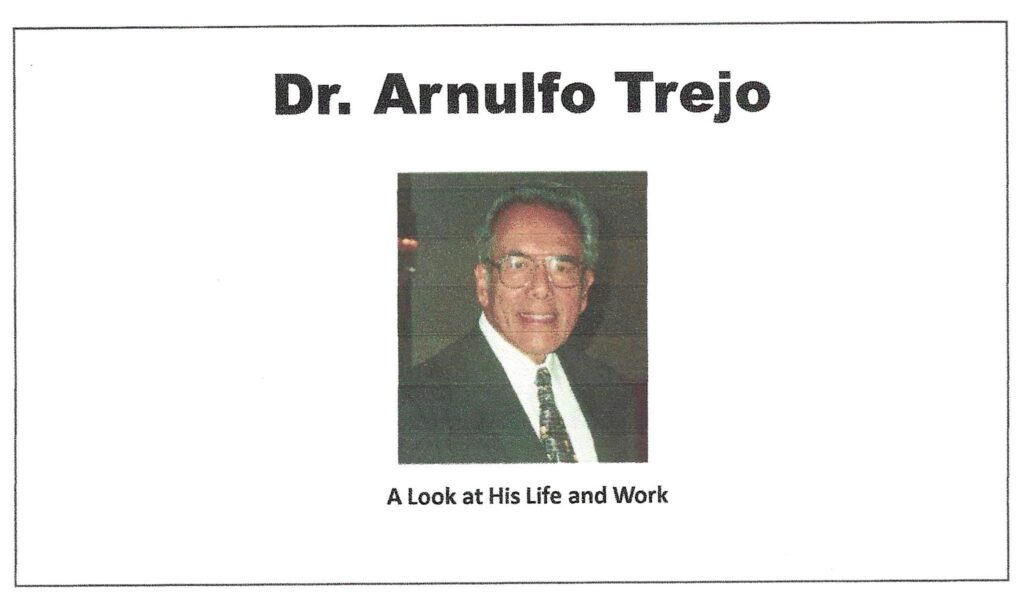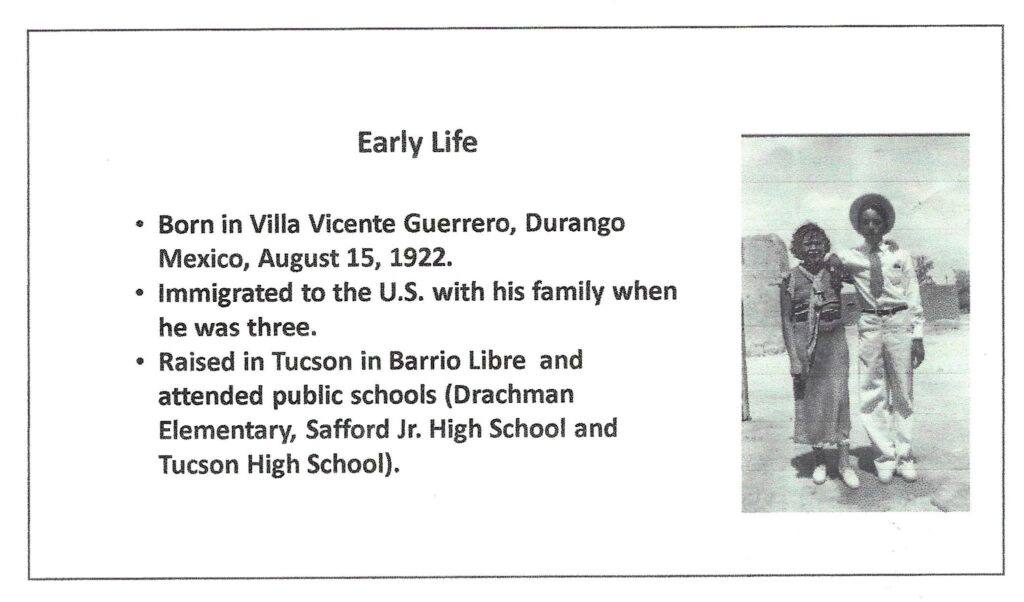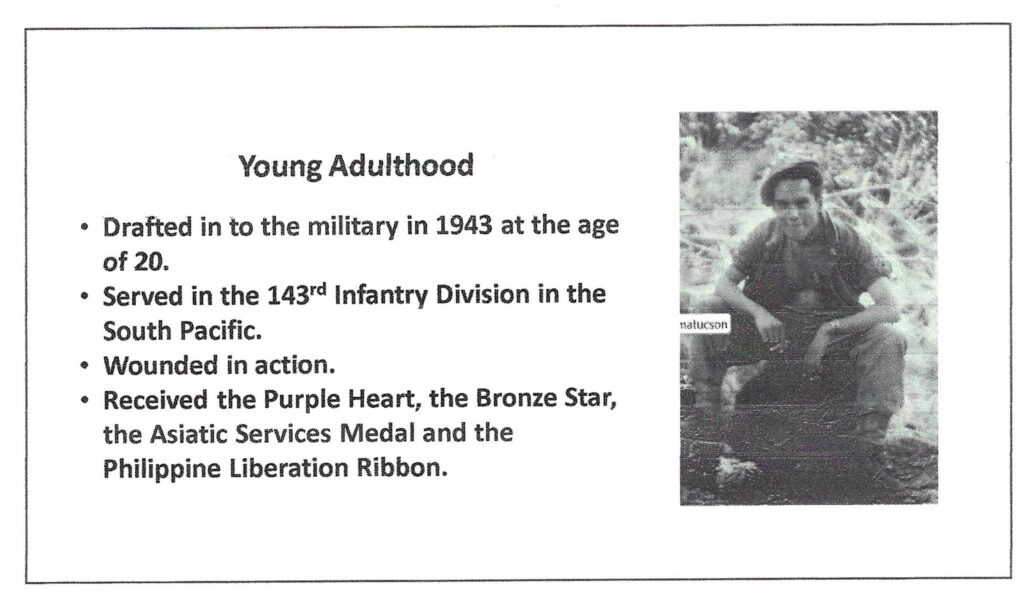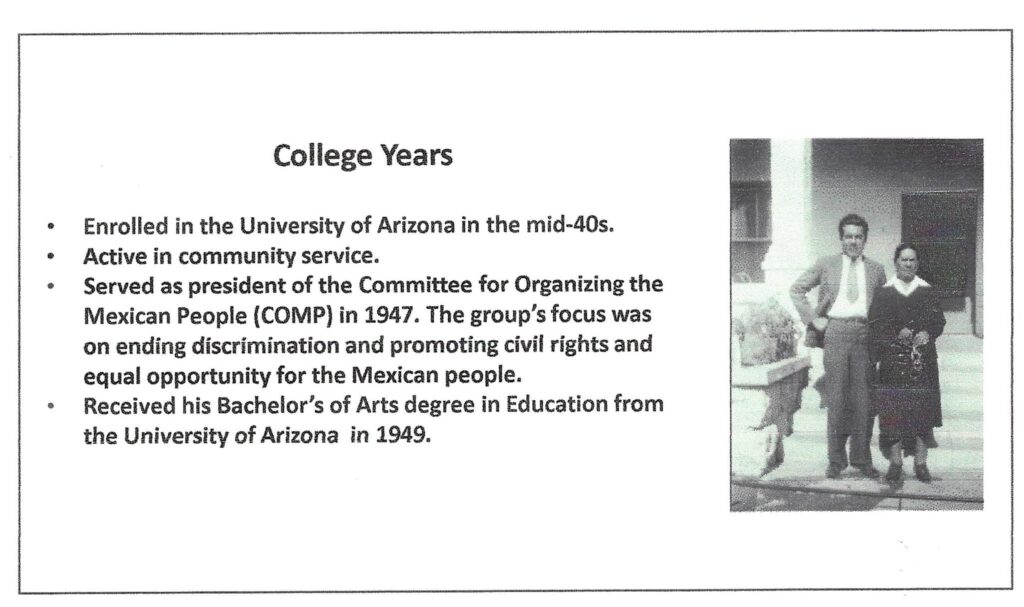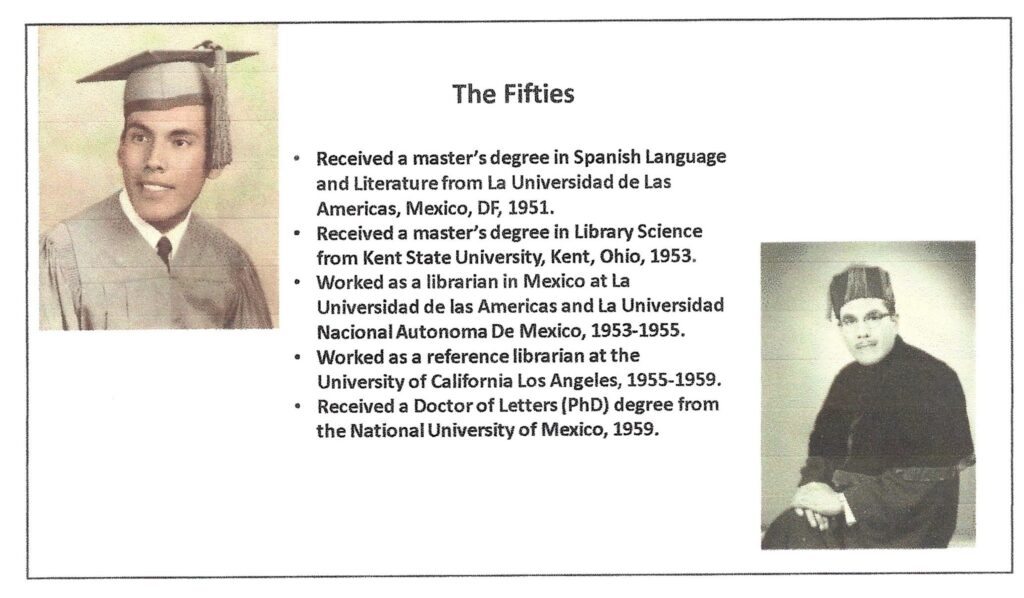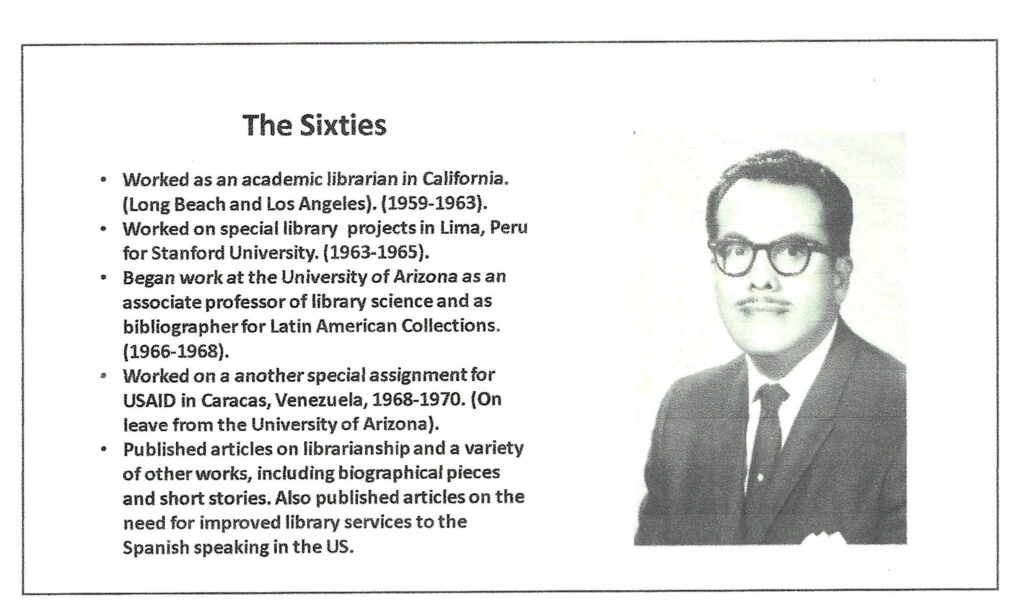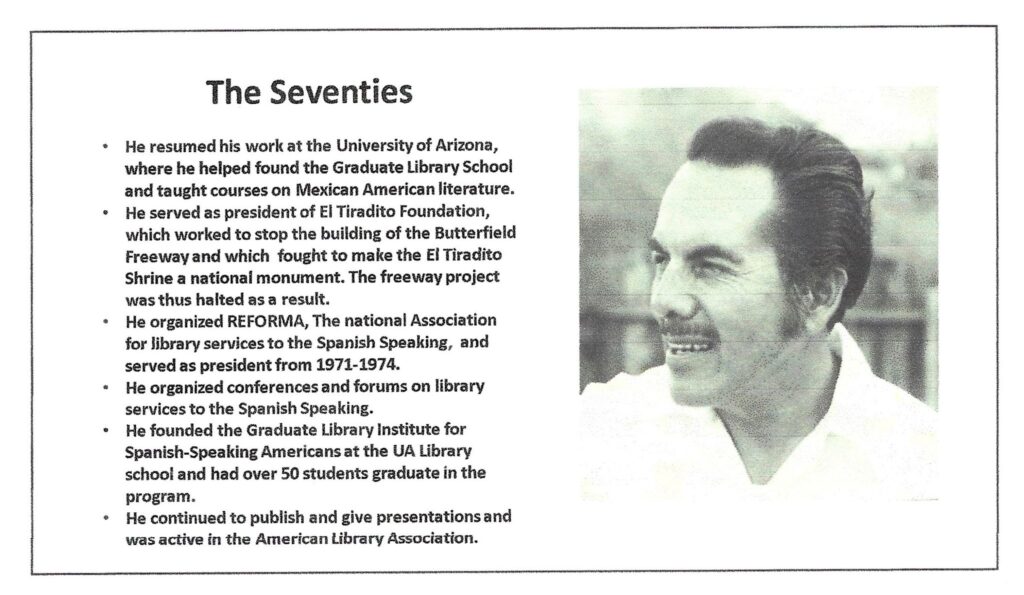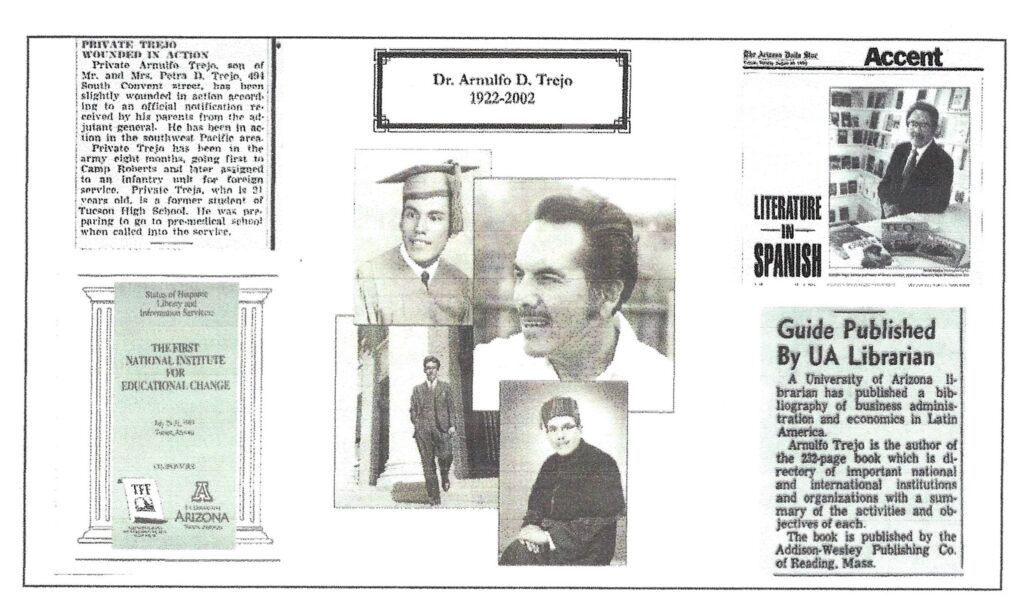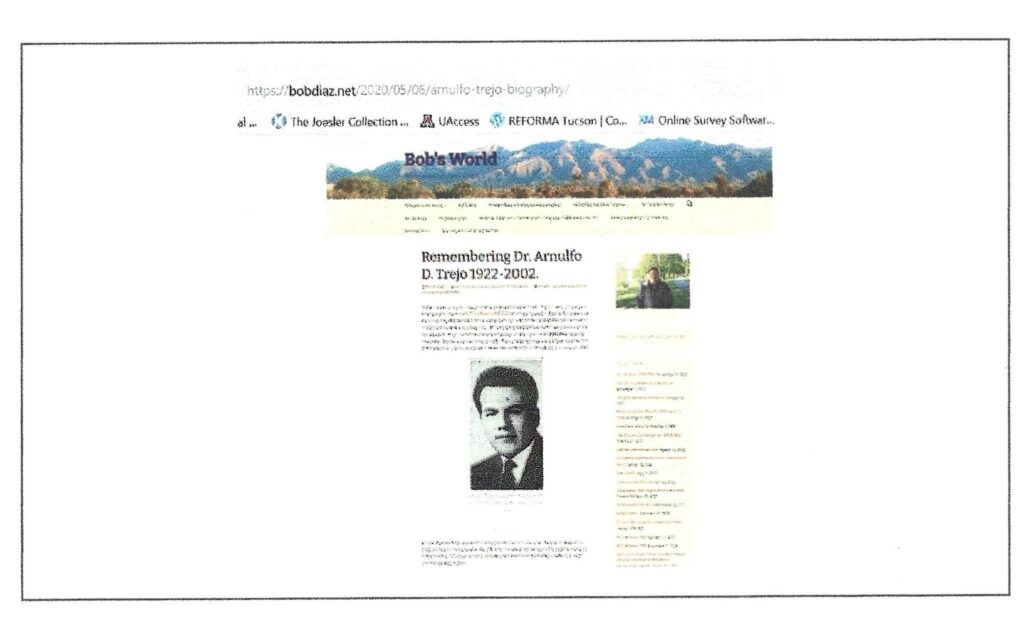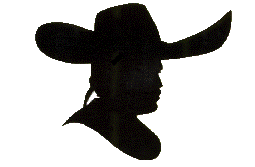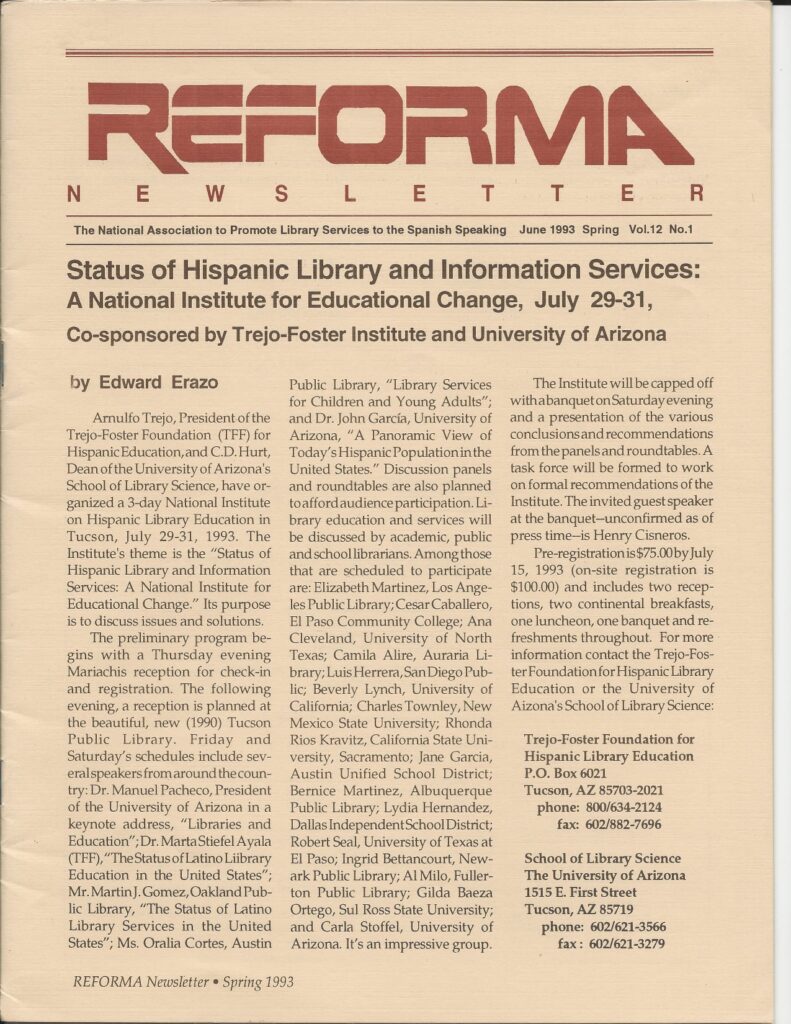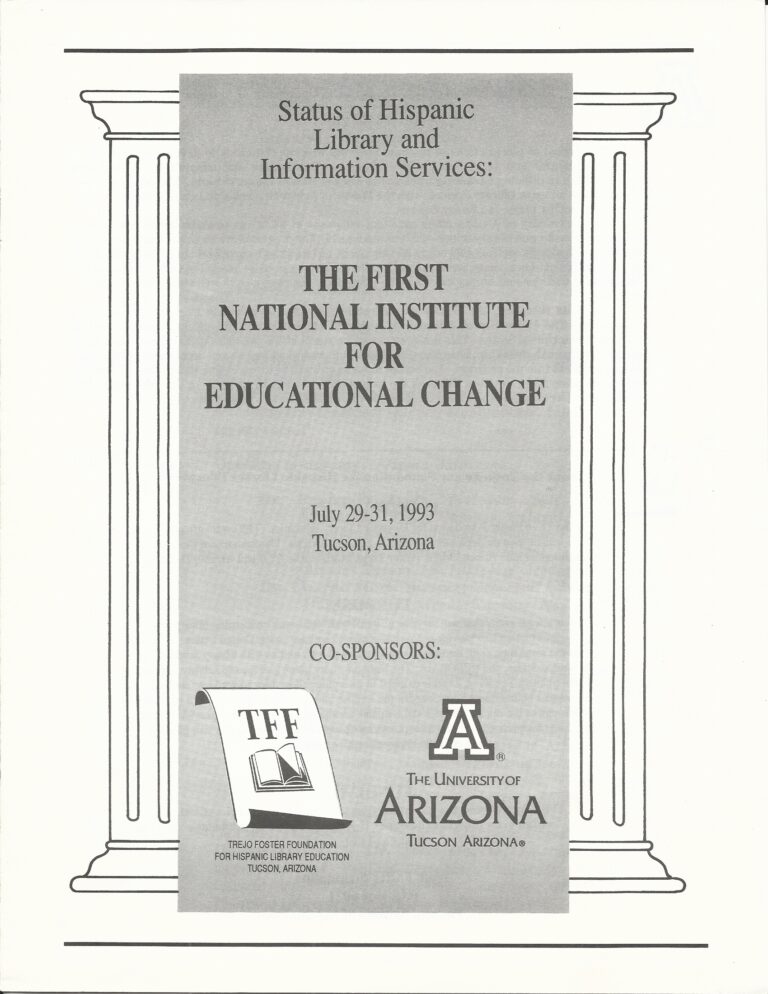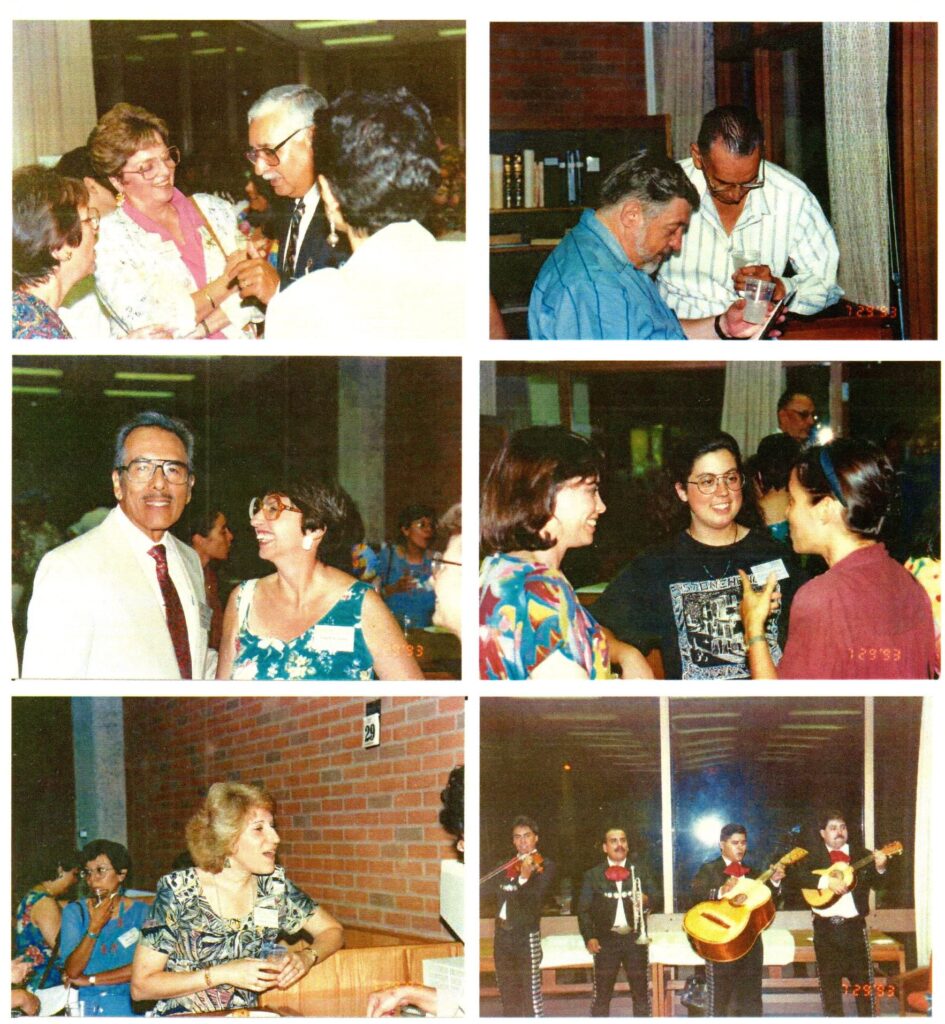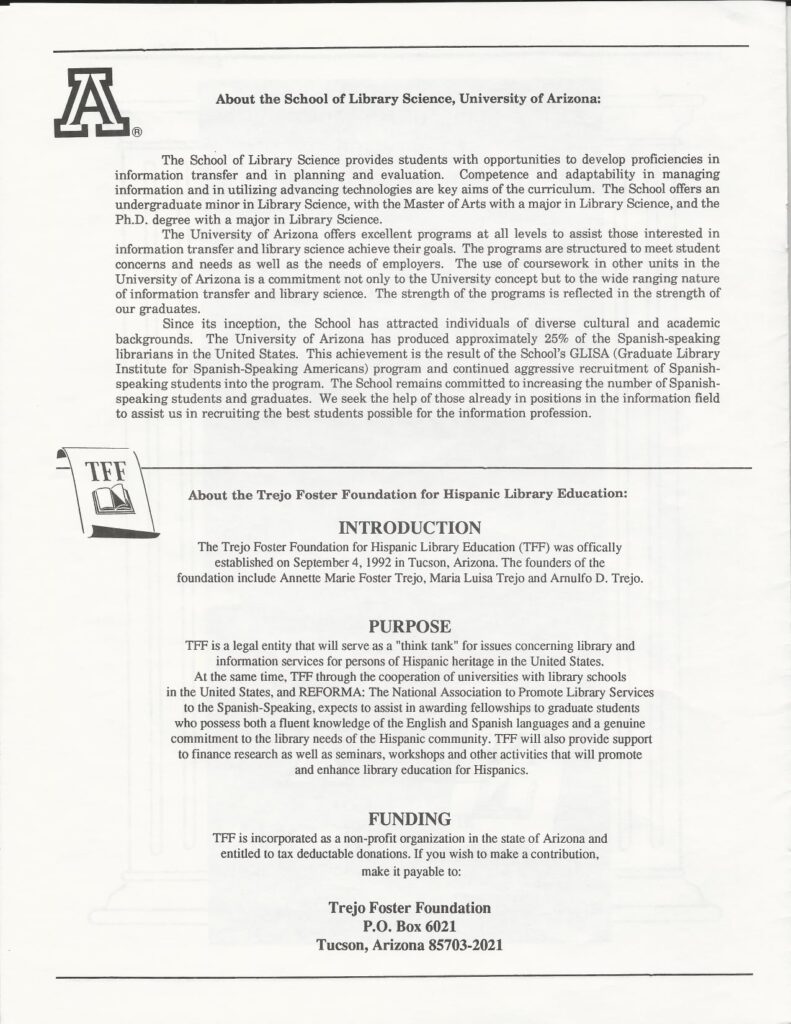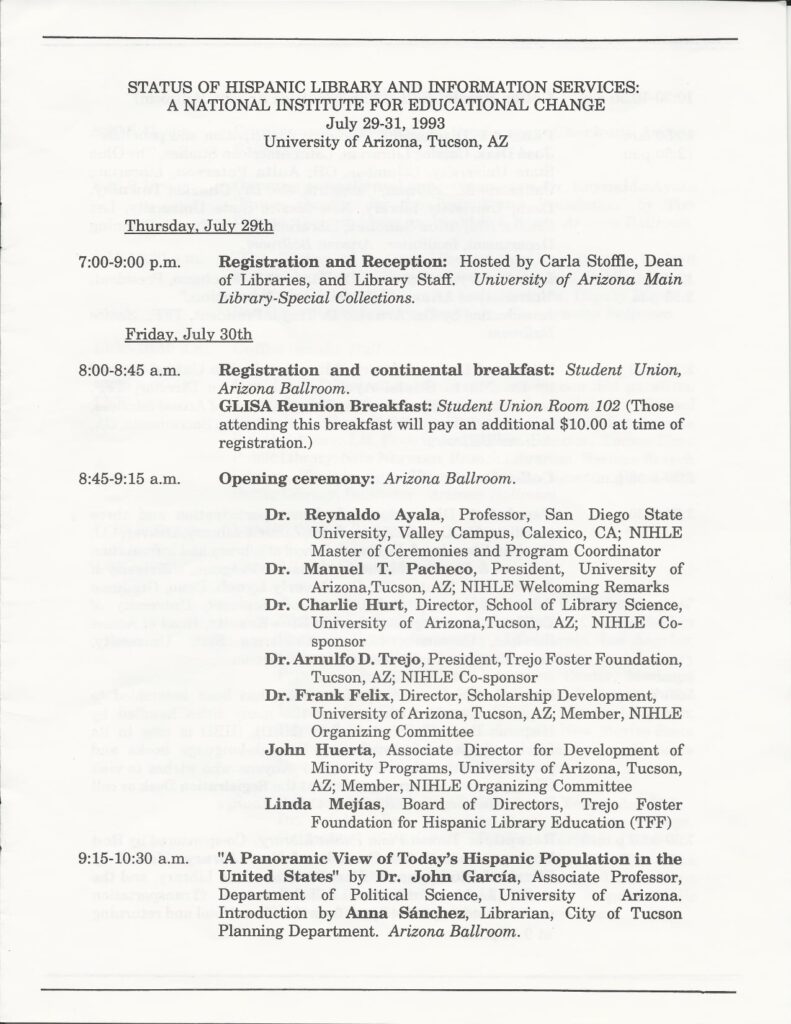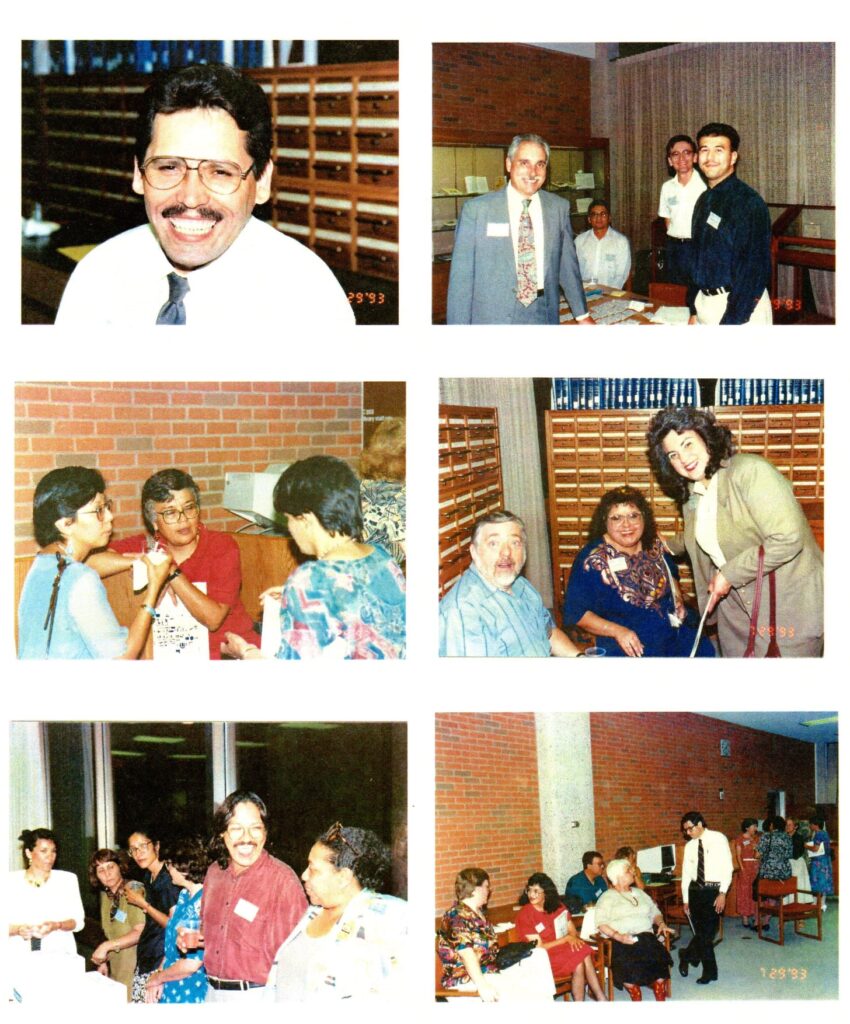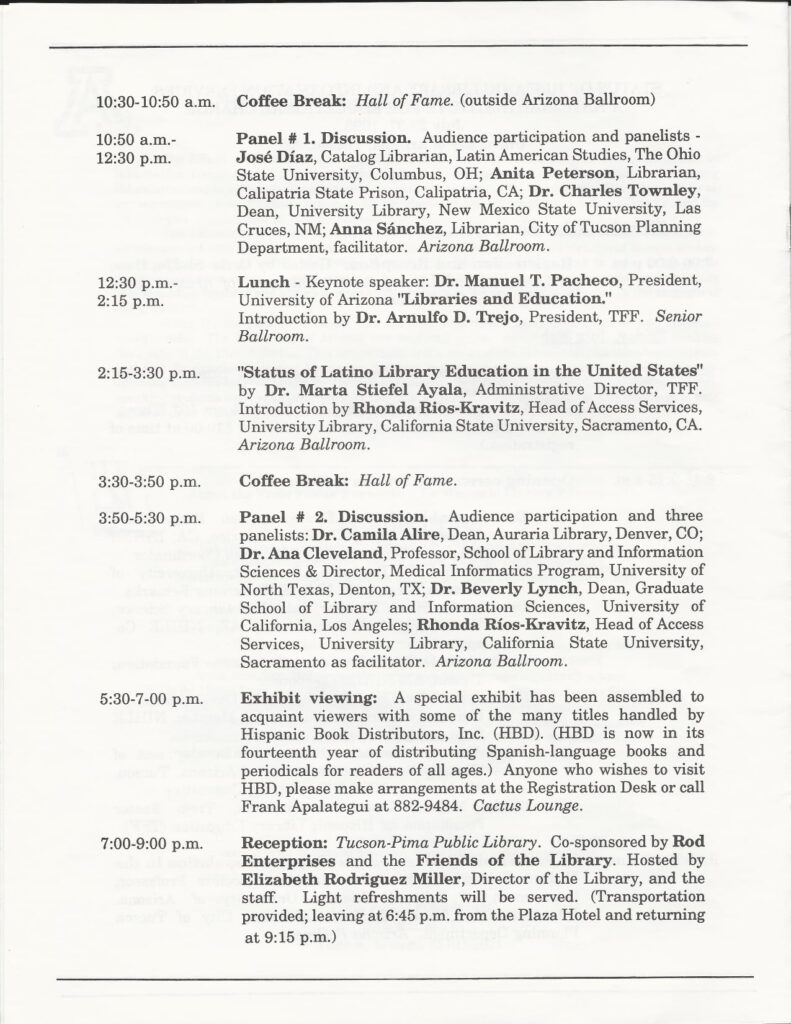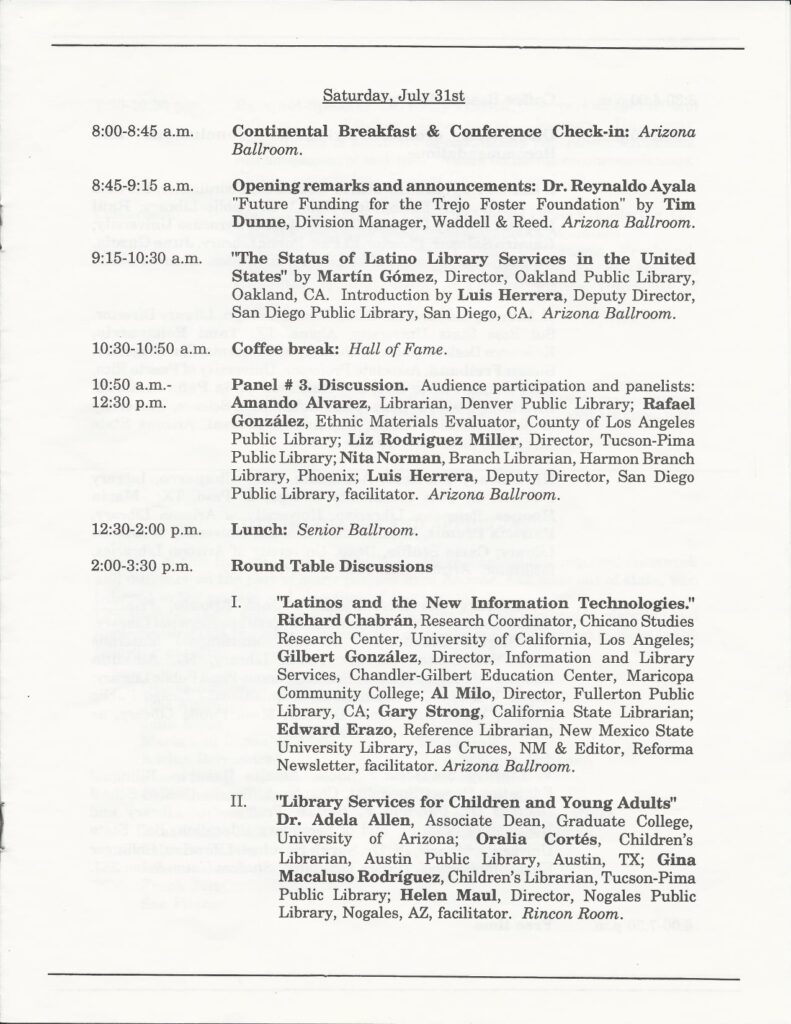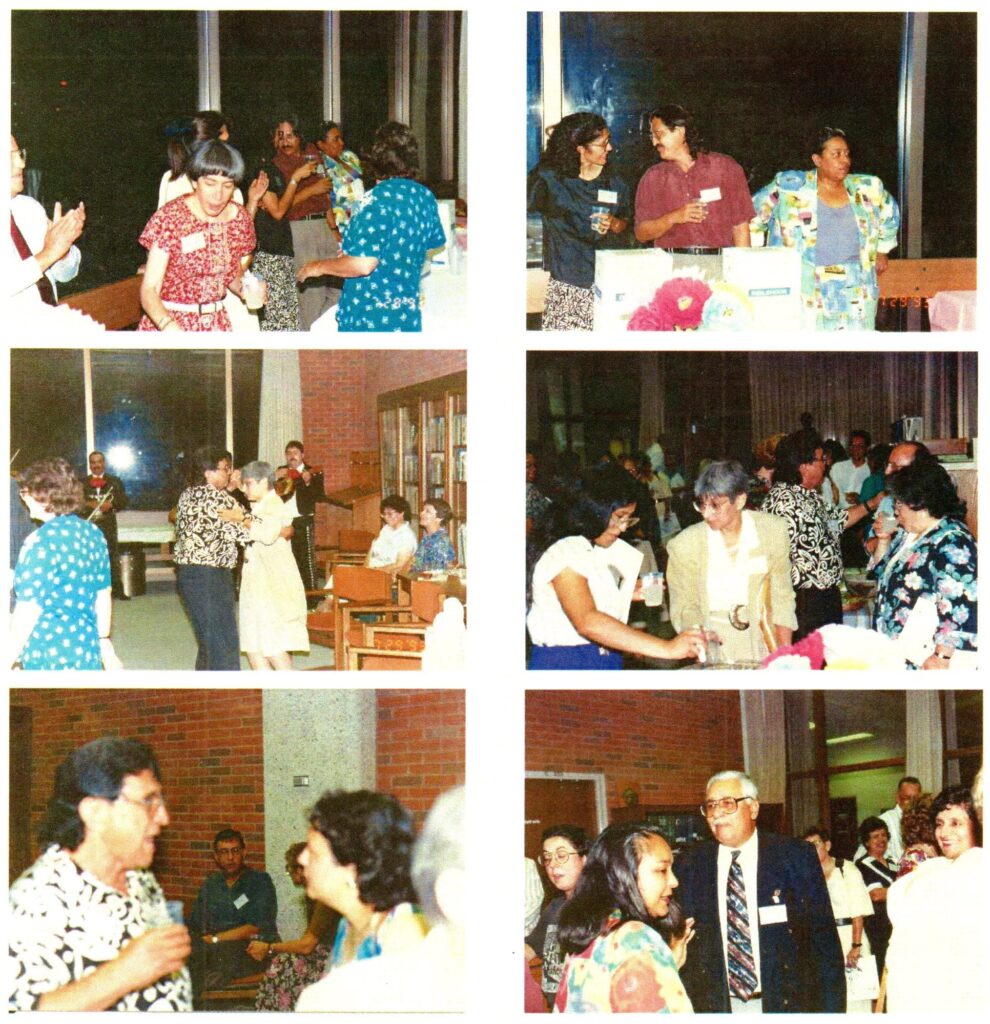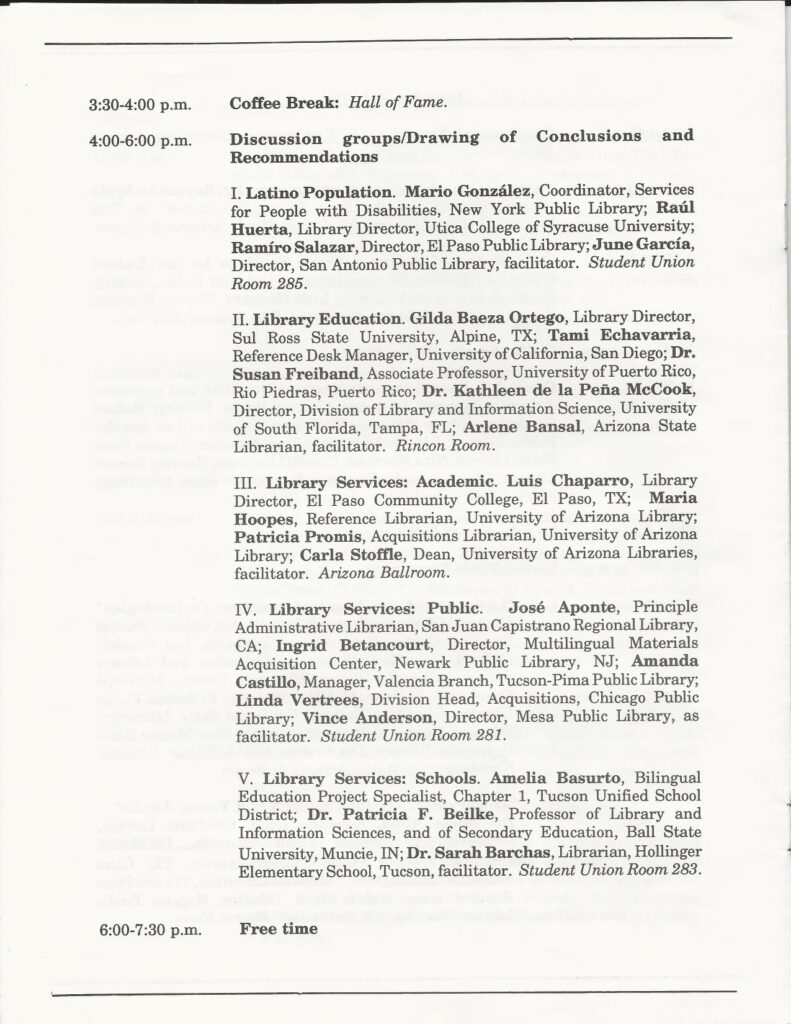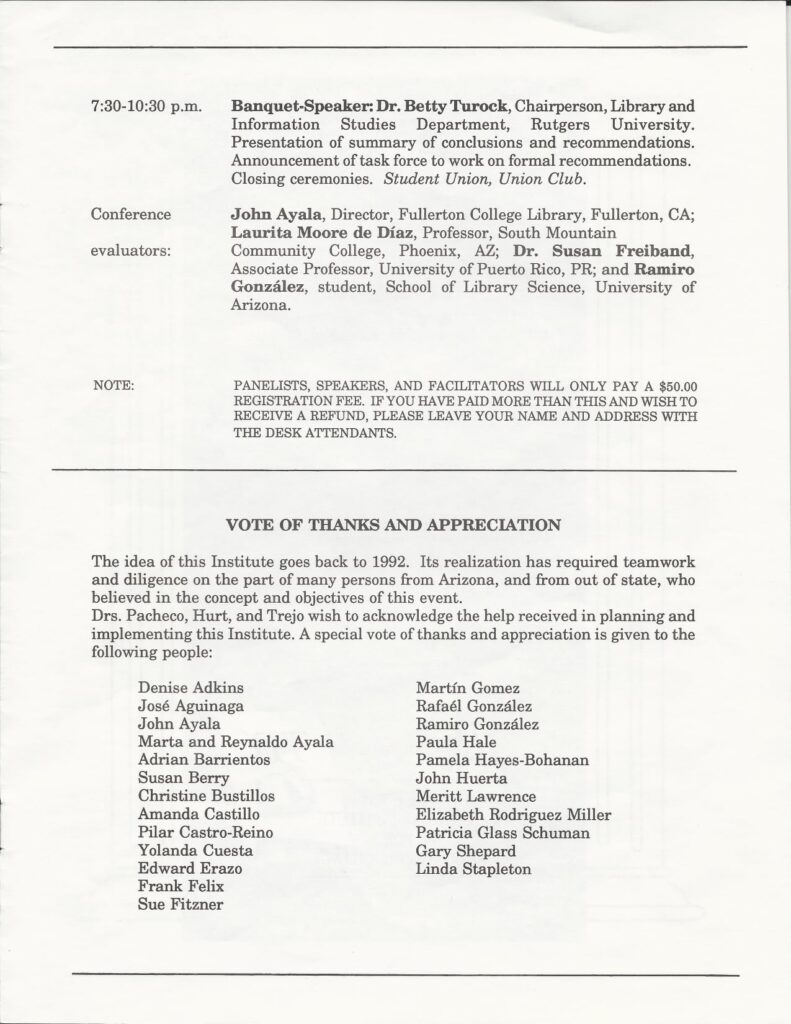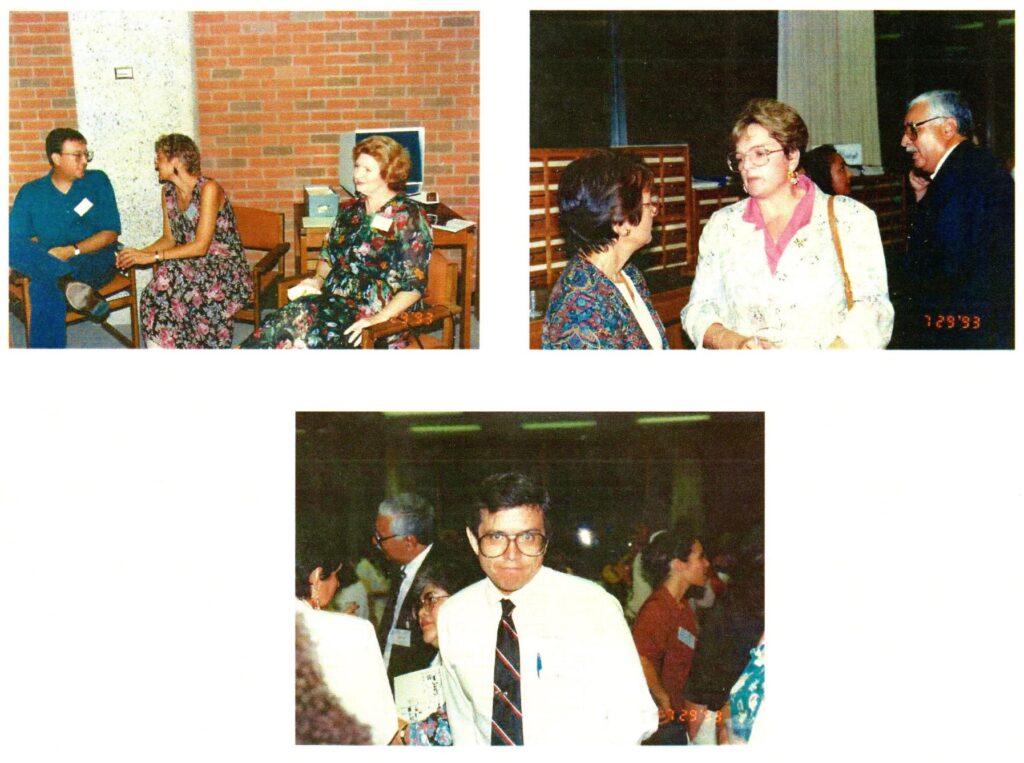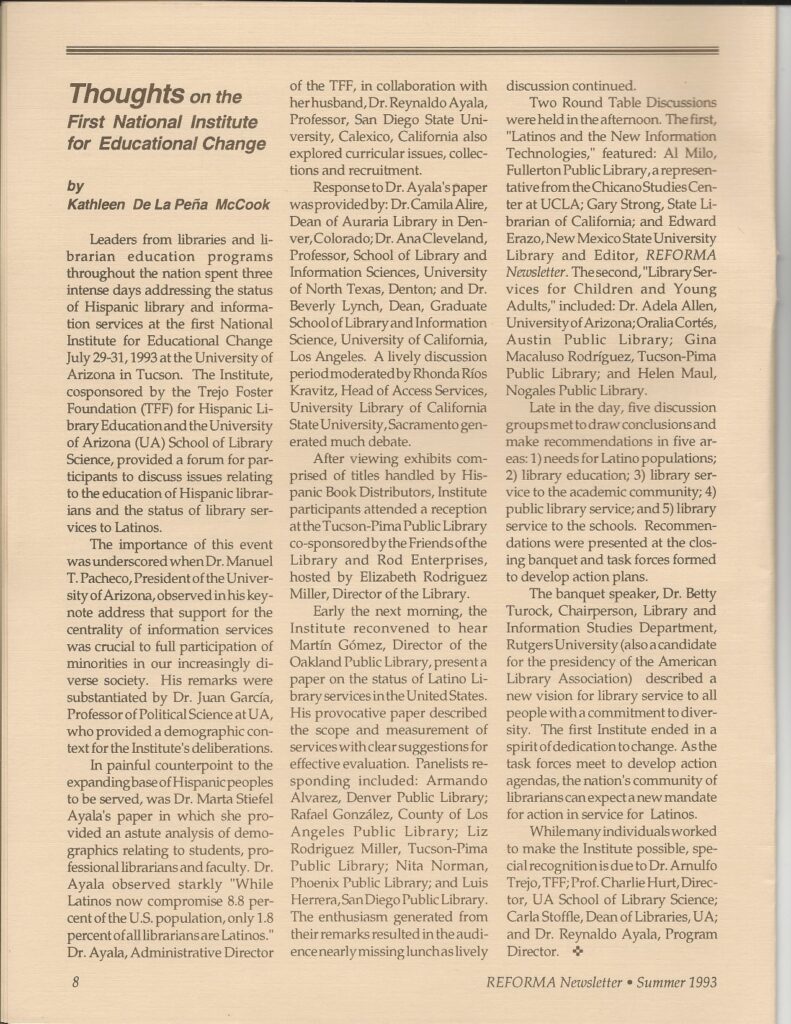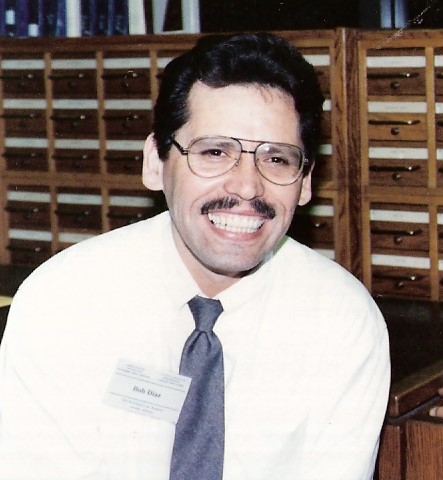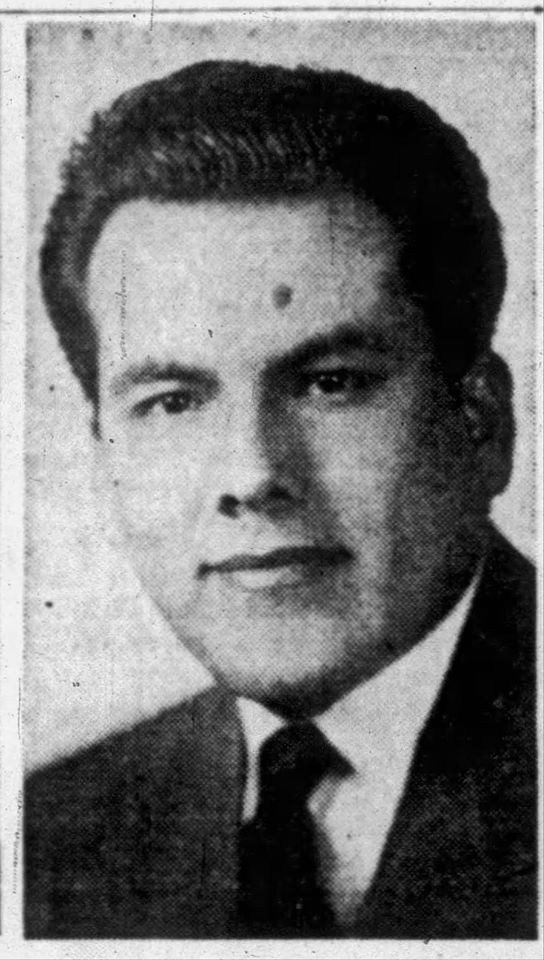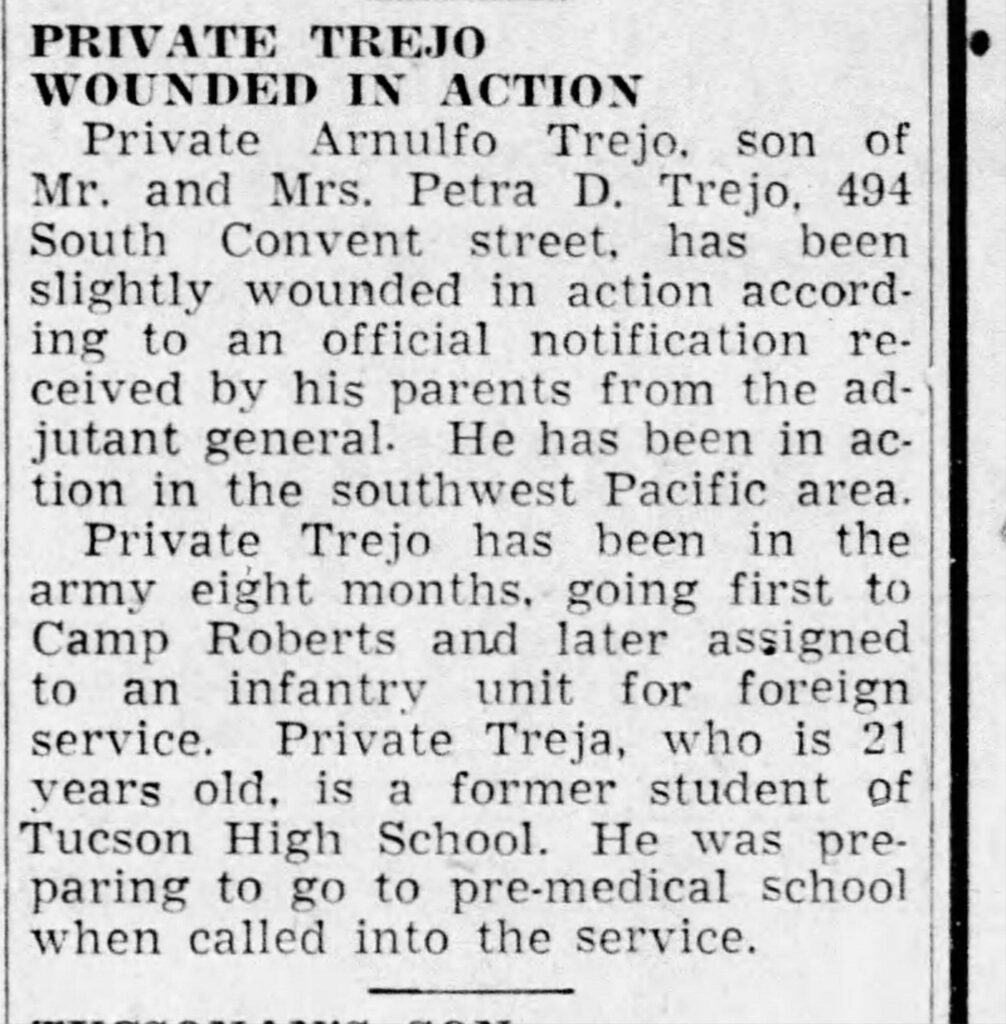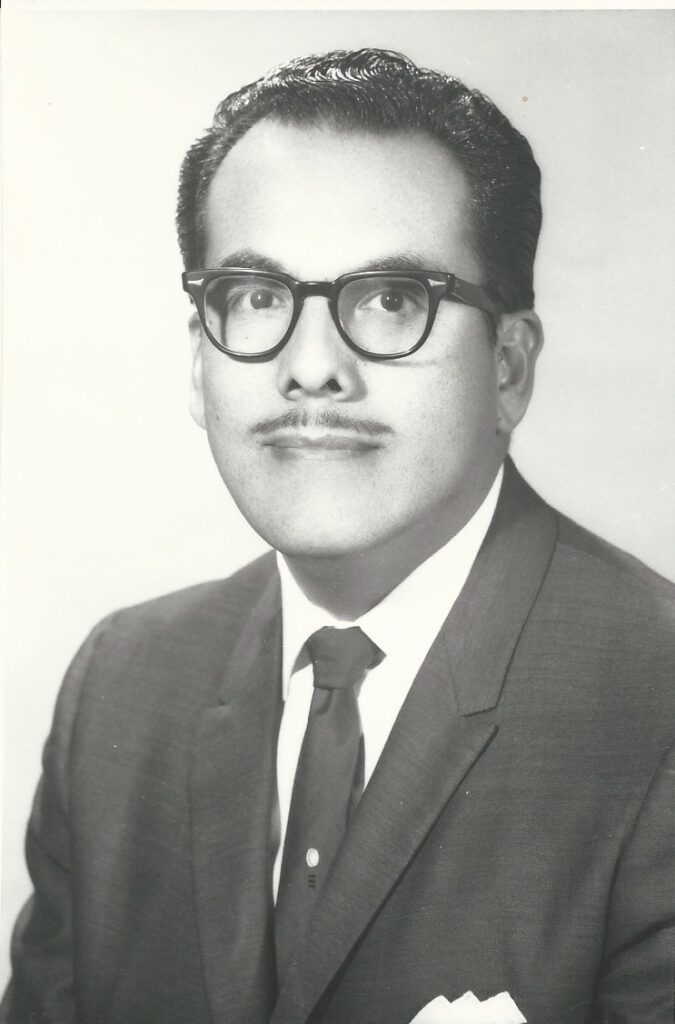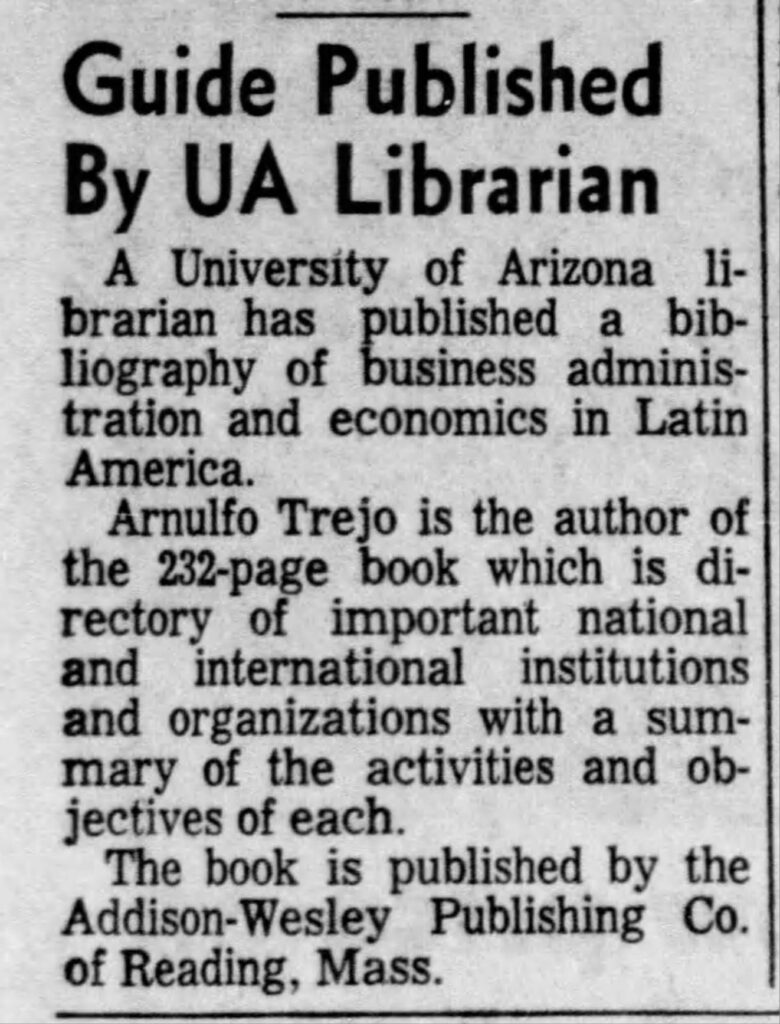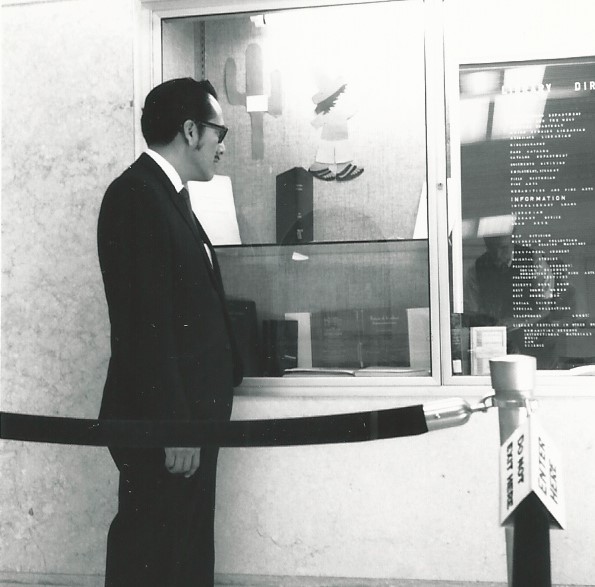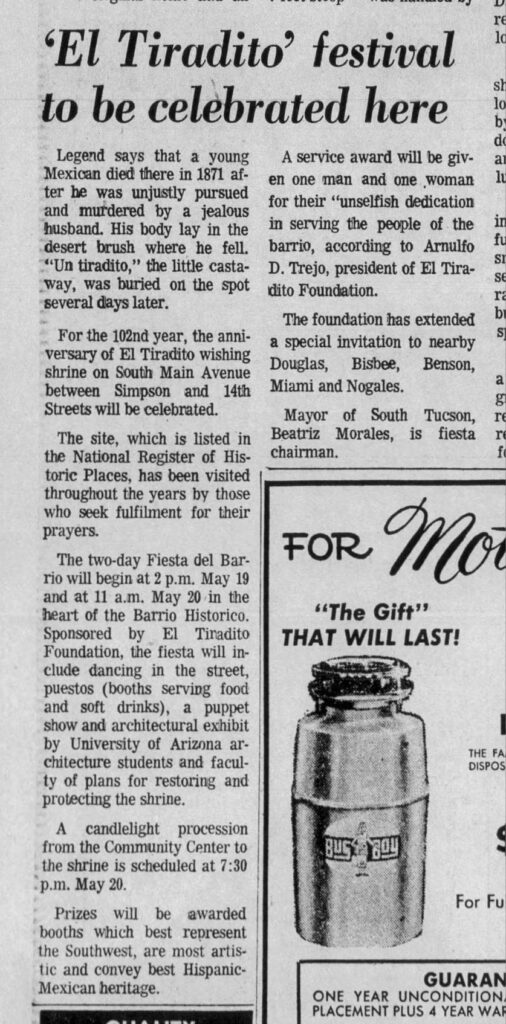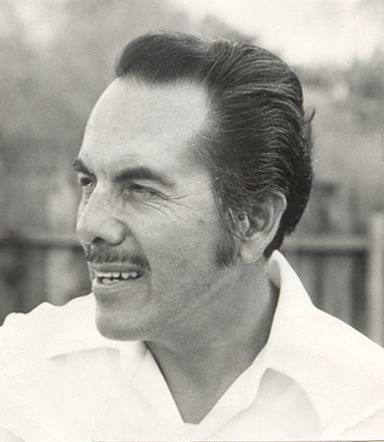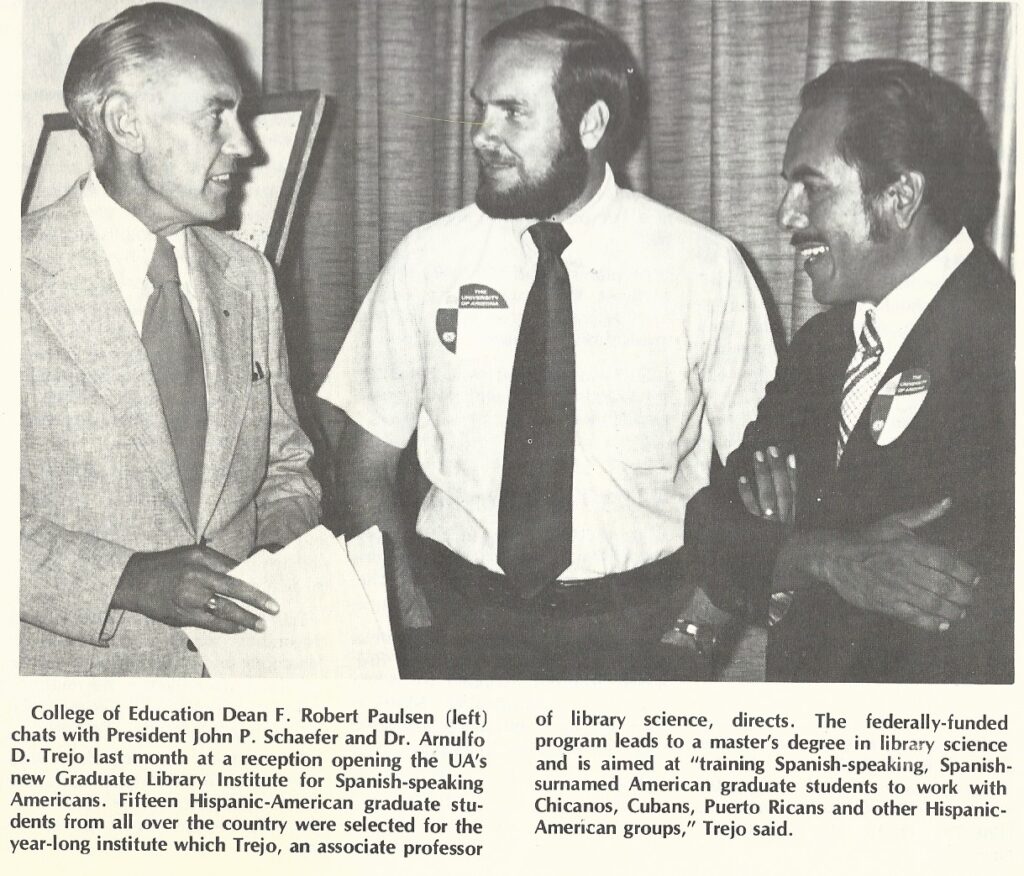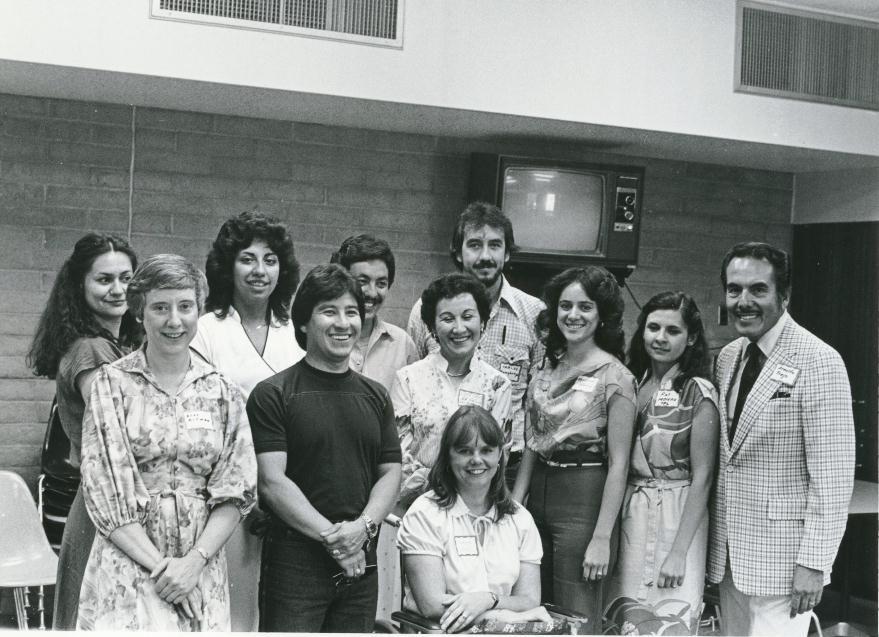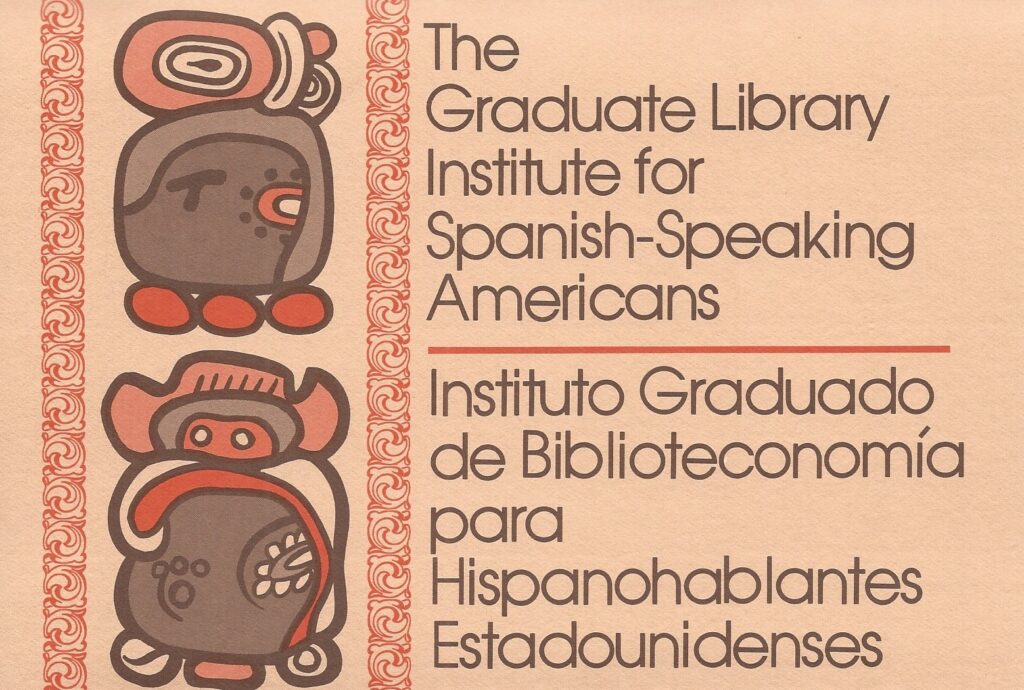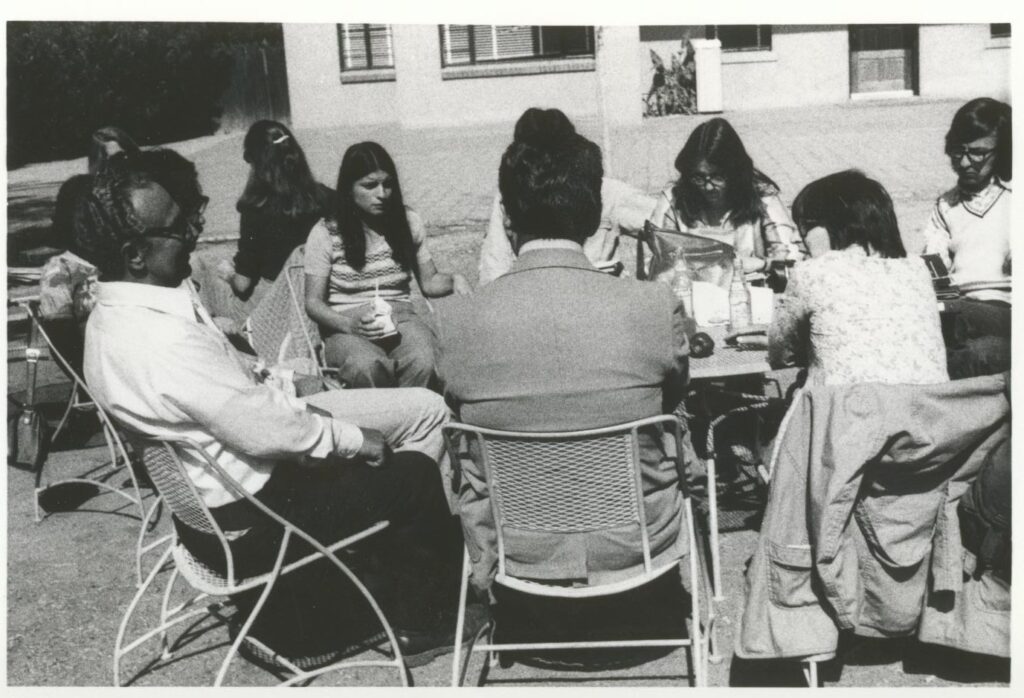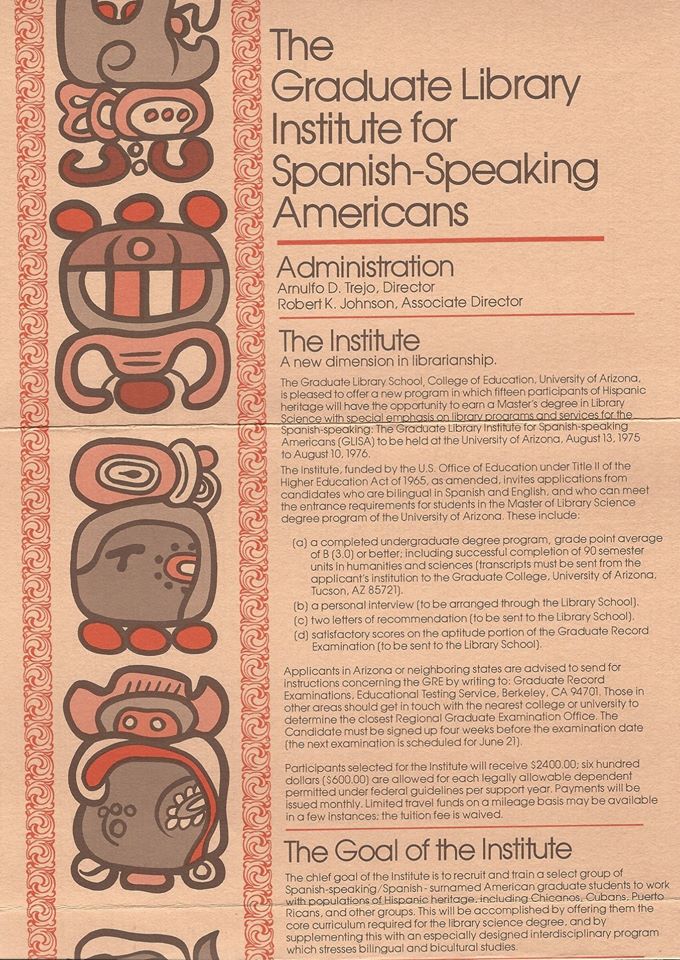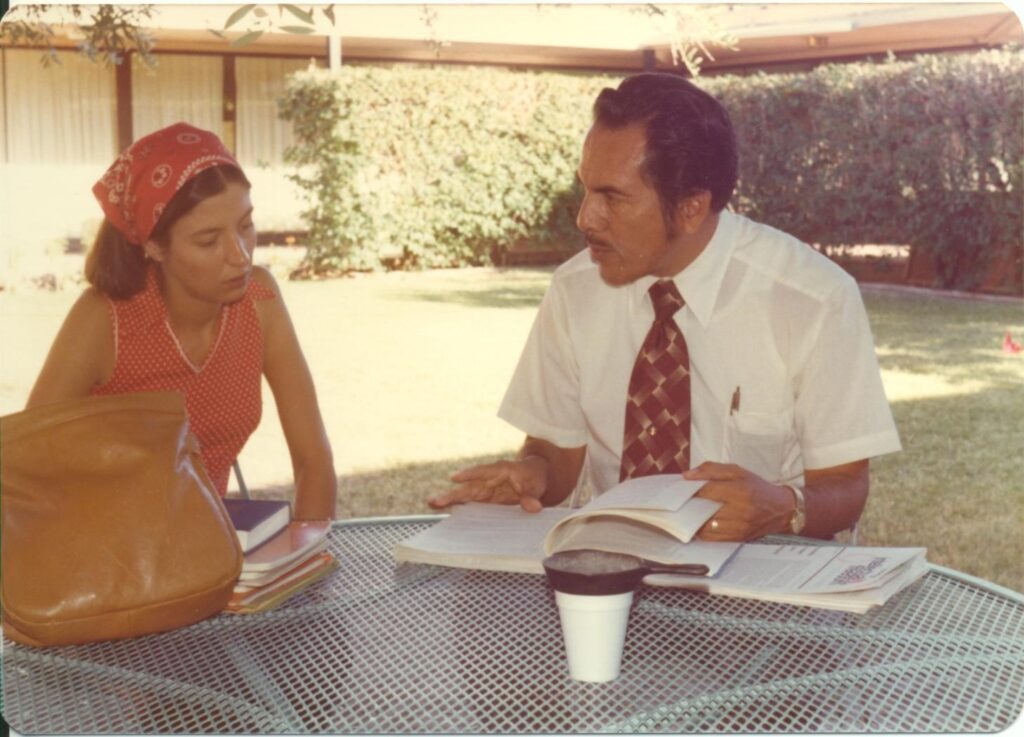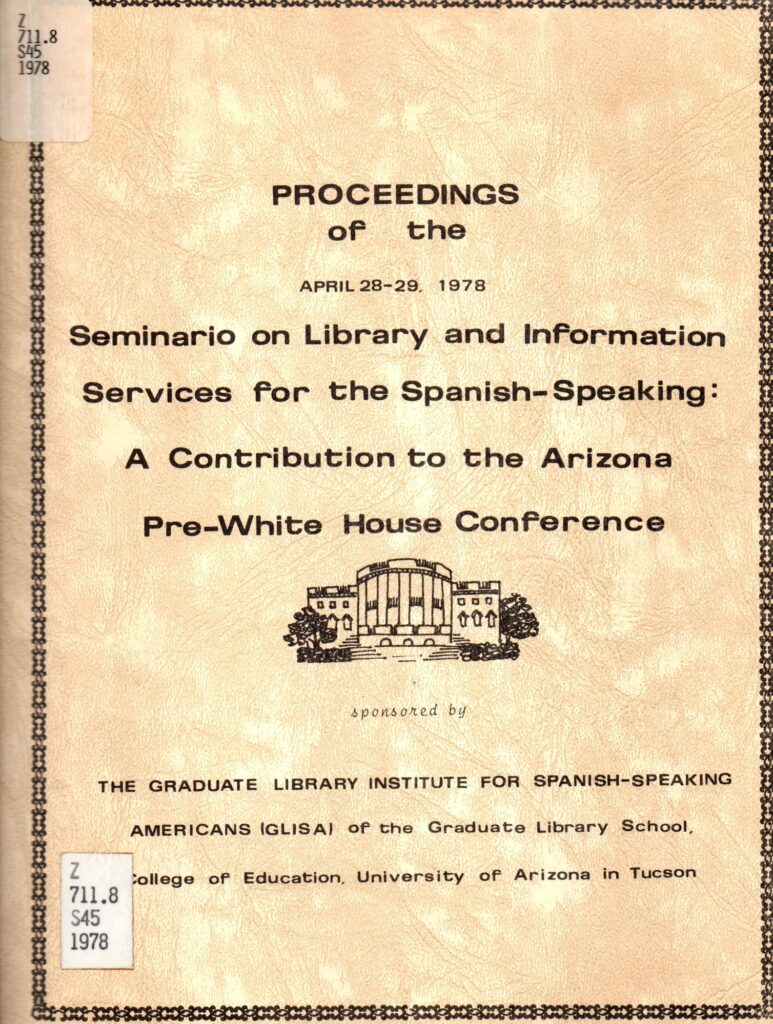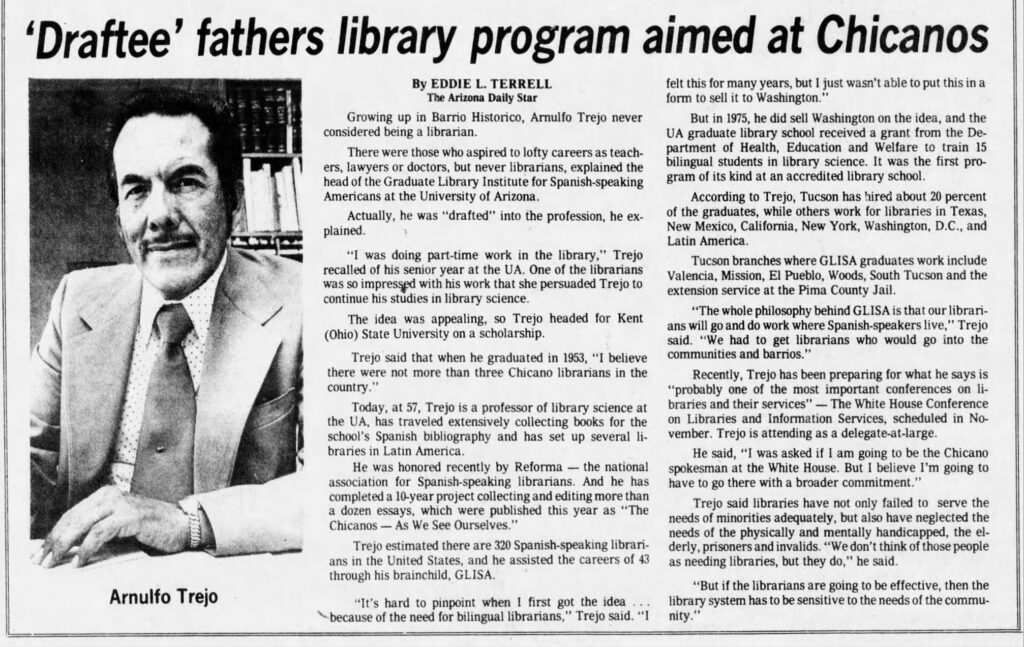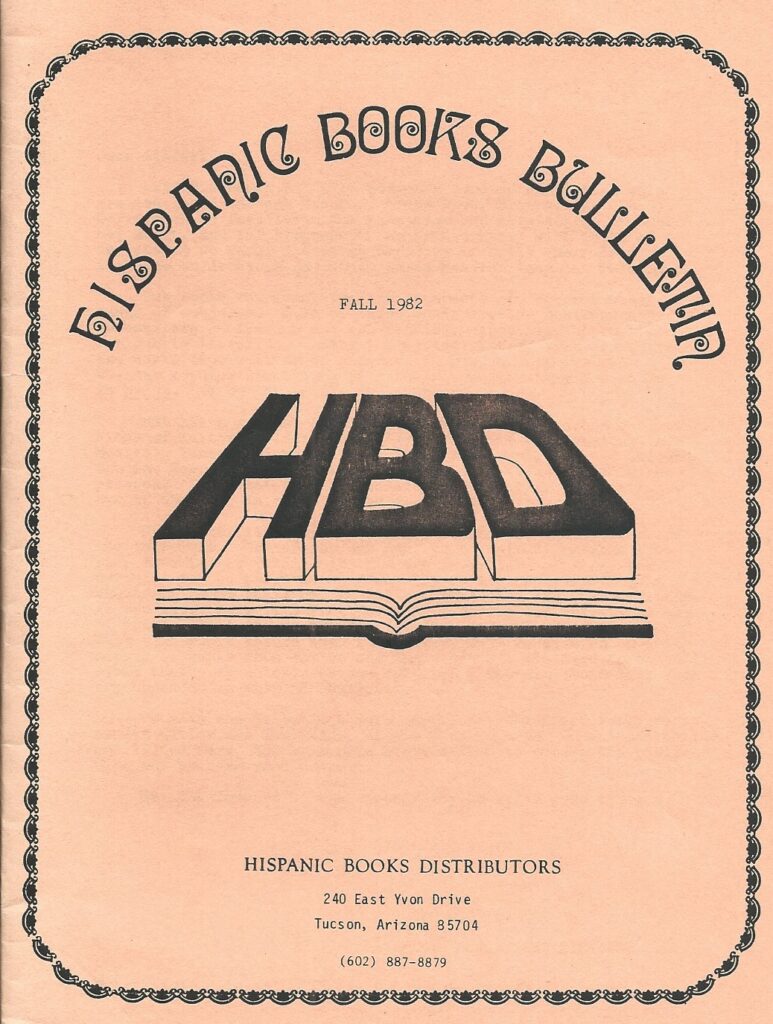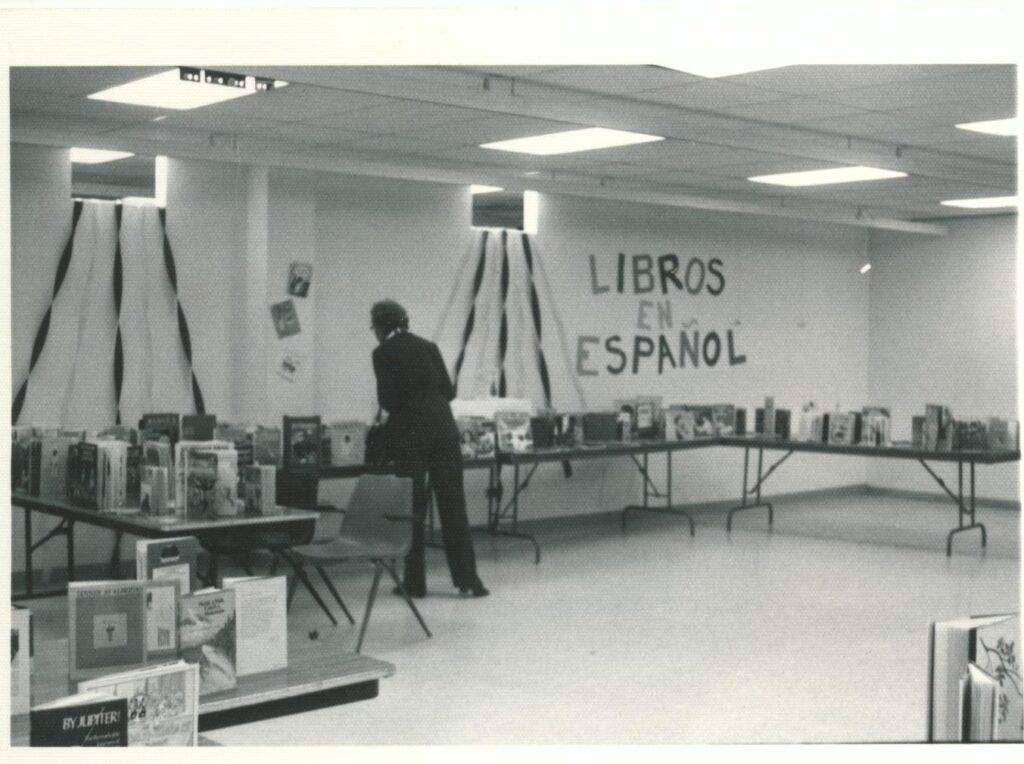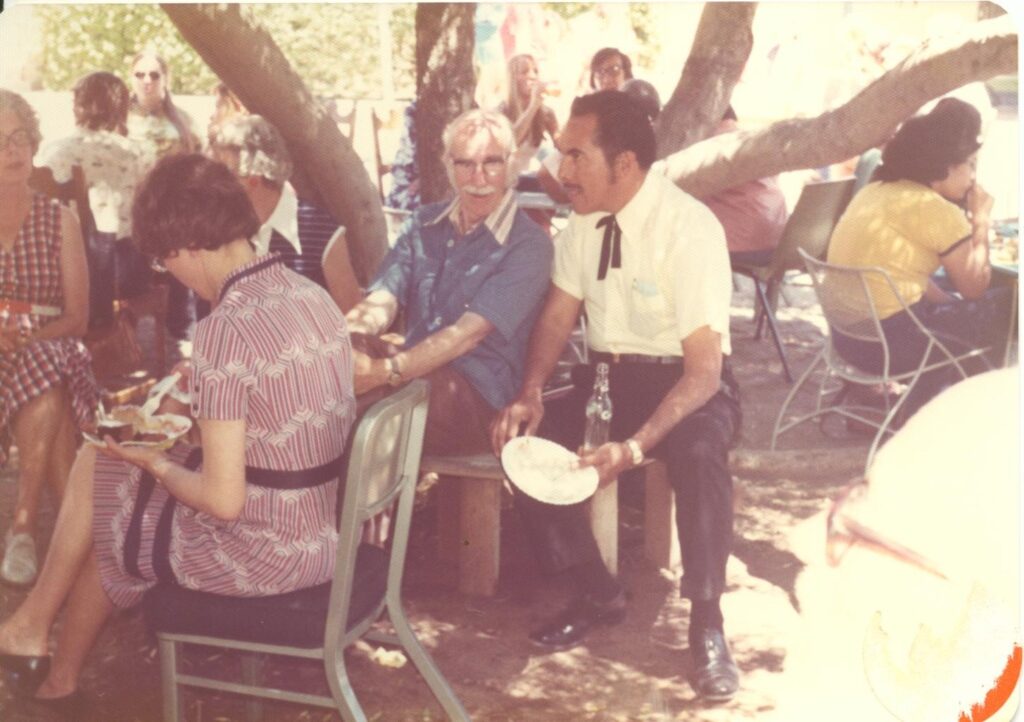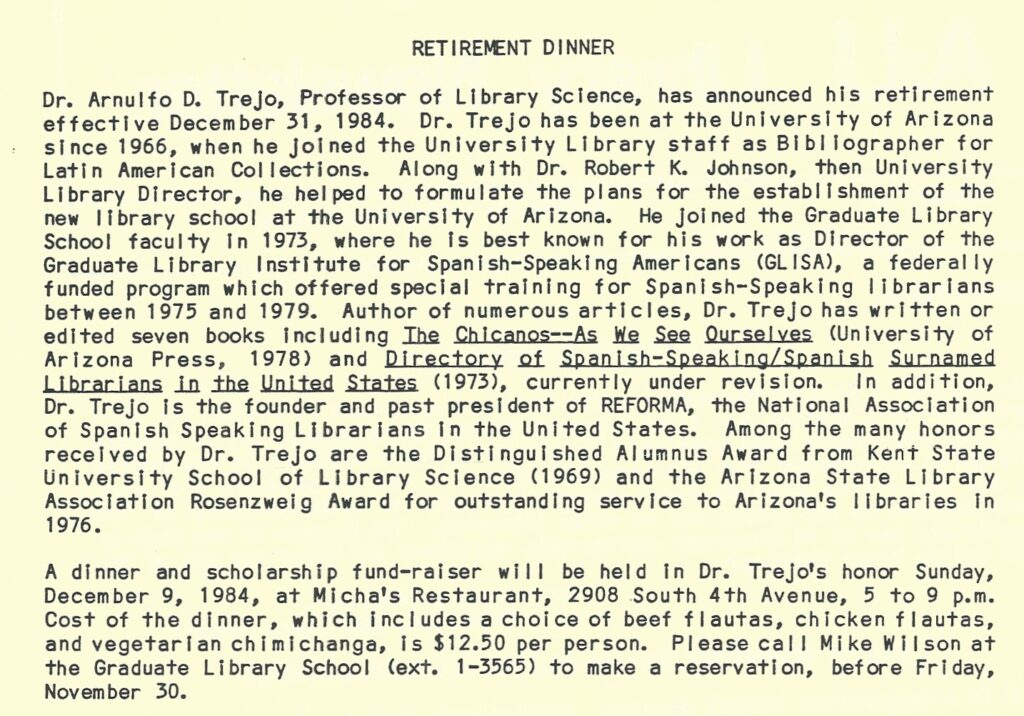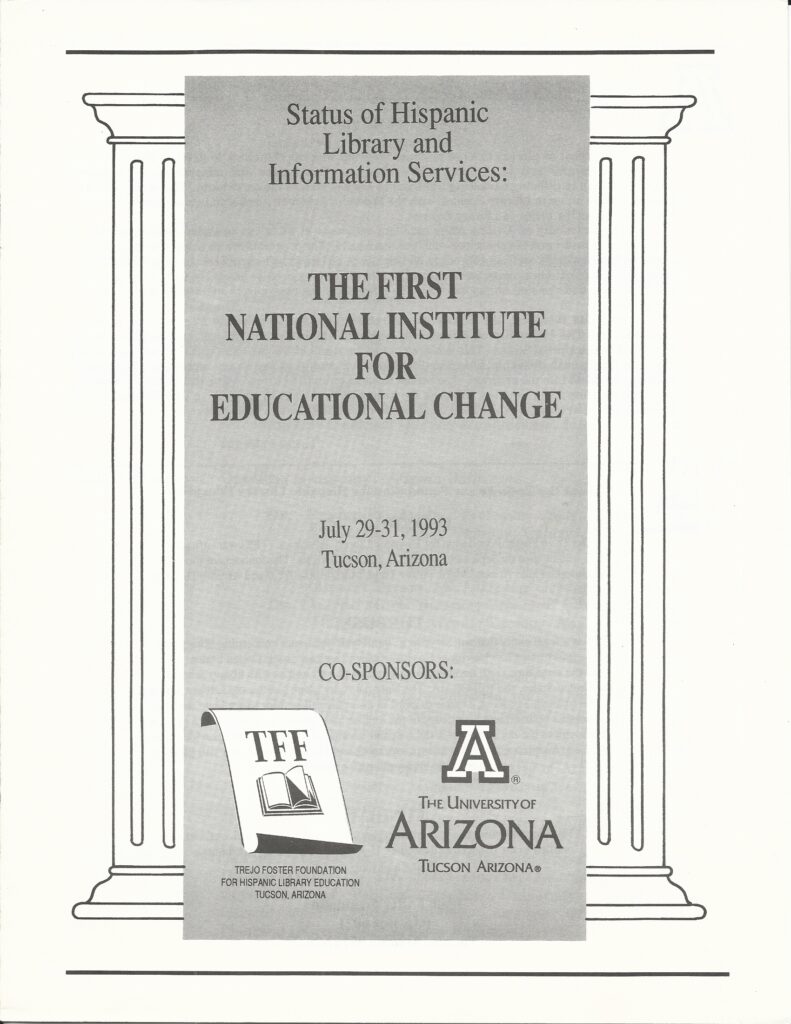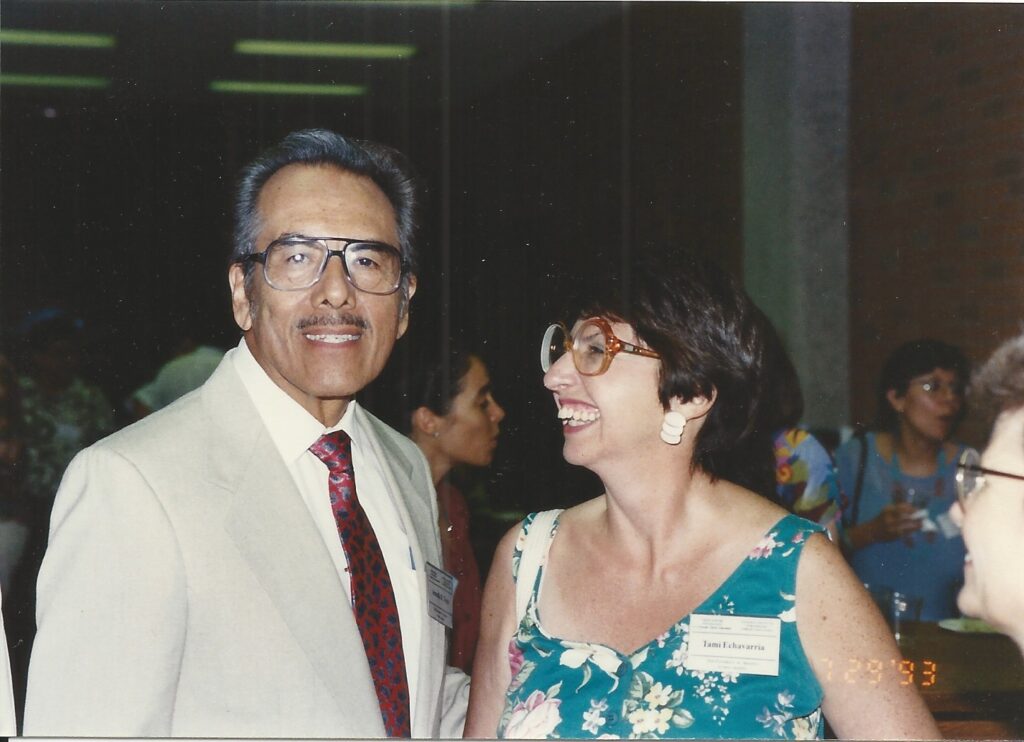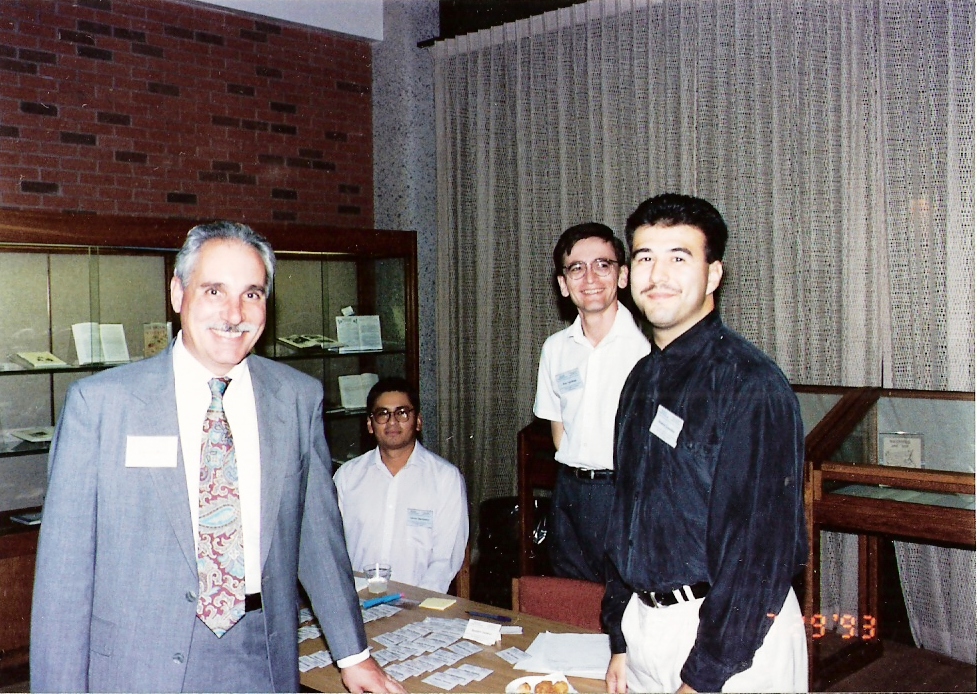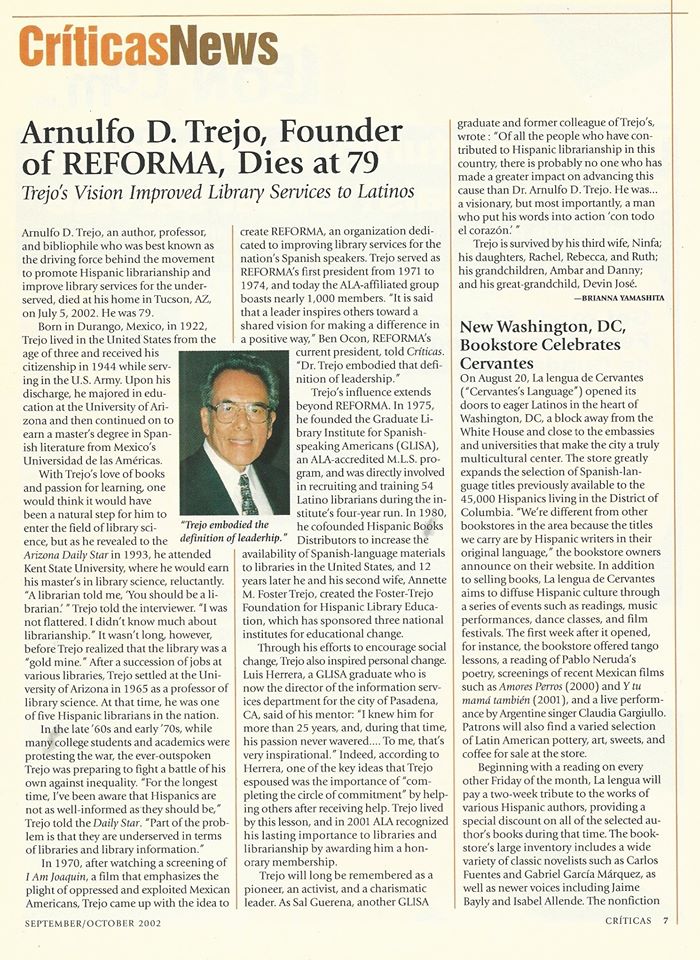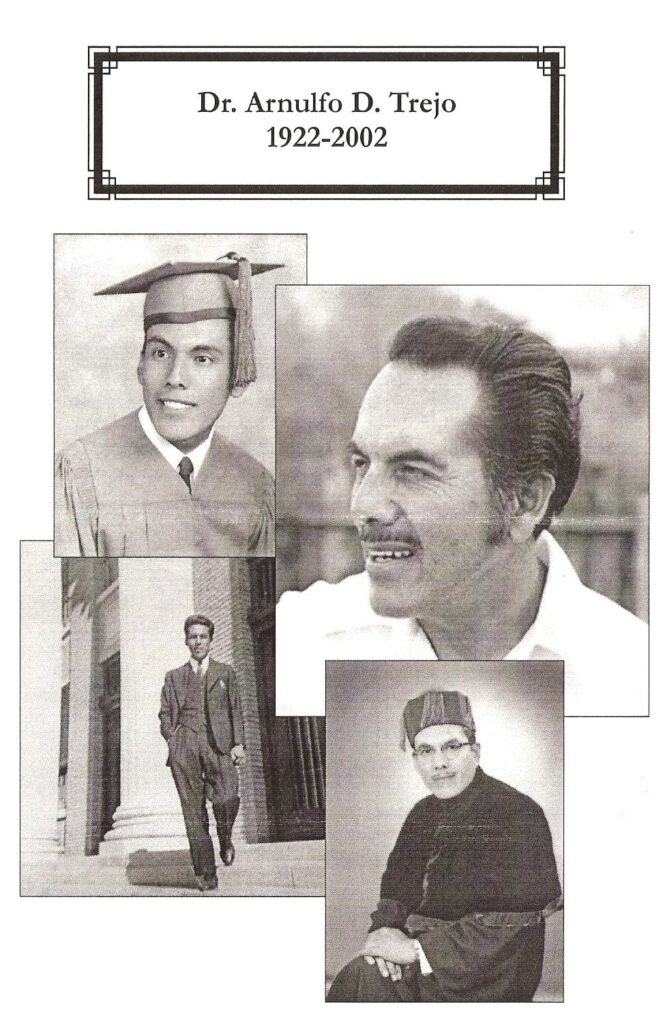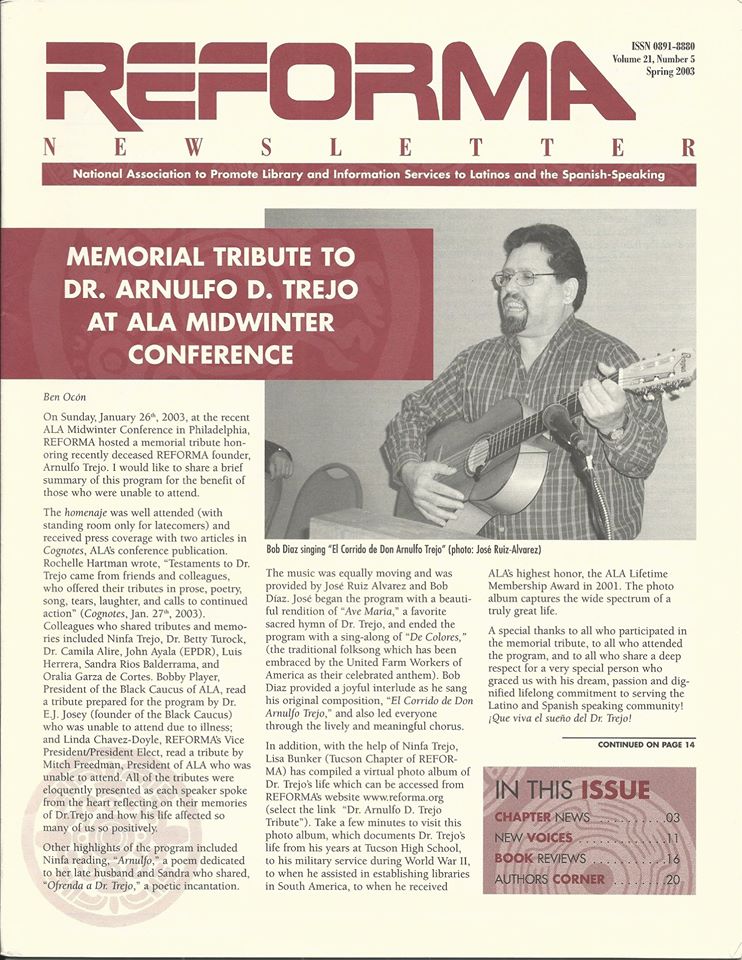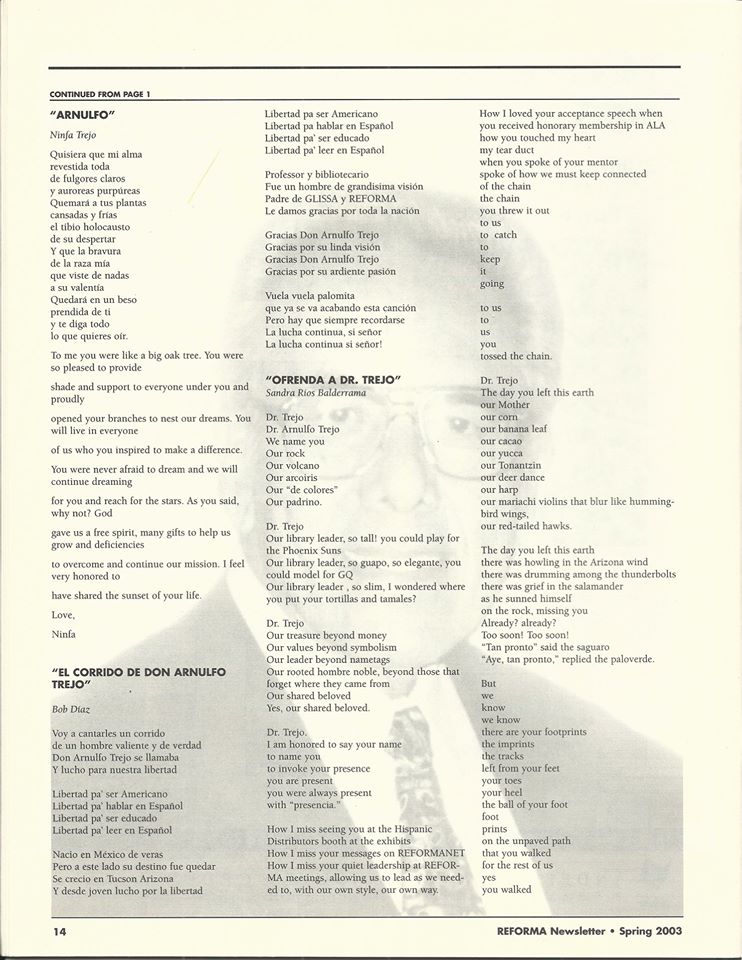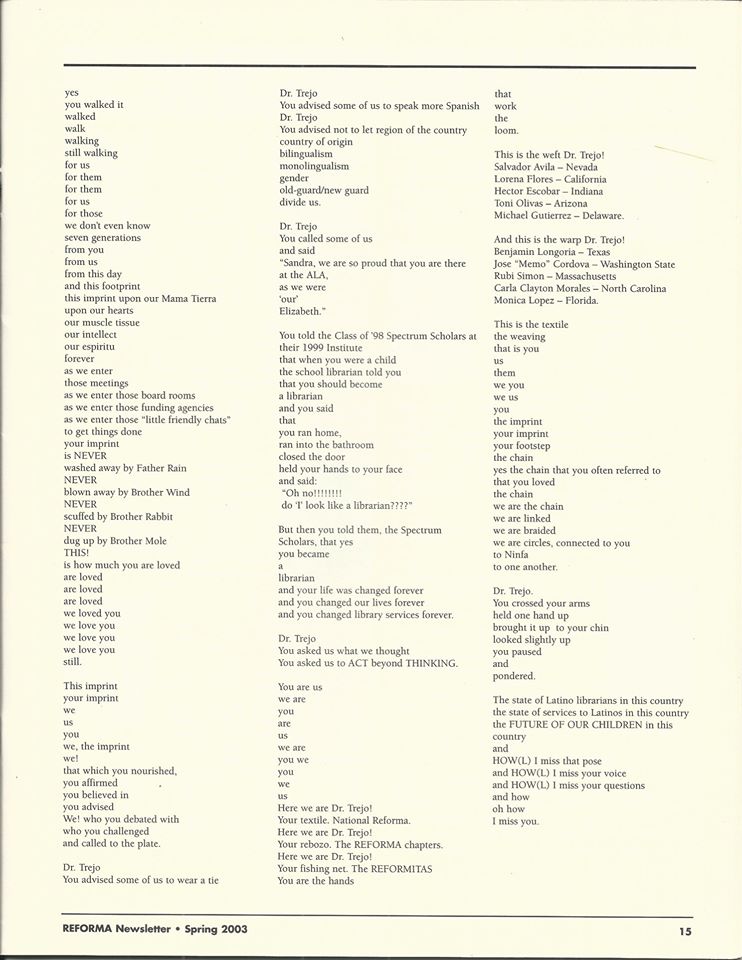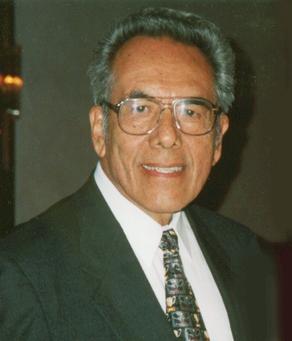When I was in high school in the mid-70s, my journalism teacher, Jane Cruz, enrolled in the Graduate Library Institute for Spanish-speaking Americans (GLISA), a special master’s of library science program at the University of Arizona. The program, a federally funded initiative to train librarians of Hispanic descent and those wishing to serve the country’s ever-growing Spanish-speaking population, was directed by Dr. Arnulfo Trejo, a longtime librarian, academic, and founder of REFORMA, the National Association for the Promotion of Library Services to the Spanish-speaking. The curriculum of the GLISA program focused primarily on training librarians in outreach and programming for the Spanish-speaking and in building Spanish-language library collections.
Jane and her husband Ron had just acquired ownership of La Campana Books, a local bookstore that specialized in leftist literature, Latino literature and bilingual materials, and Dr. Trejo, a regular visitor to the bookstore, encouraged her to apply for a spot in the GLISA program. She was very busy at the time, raising two children, teaching at Salpointe High School, and running a new business. Unfortunately, she was also dealing with some serious health issues, and as a result decided, after having devoted a considerable amount of time and effort to her studies, to leave the program before she completed her degree. It was a difficult decision.
Learning about Jane’s experience with the GLISA program sparked my own interest in librarianship, as ever since childhood, I had loved visiting the library and reading. Jane’s experience helped me realize that being a “bona fide” librarian meant one had to have a master’s degree in library science. I kept that thought in the back of my mind as I entered college.
I attended the University of Arizona from 1977 to 1982 and graduated with a bachelor of arts degree in psychology with a minor in sociology. Shortly thereafter, I decided to apply to the graduate program in Sociology at the U of A. I was accepted into the program and took courses for a semester or two, but didn’t really care for it after a while, as it turned out not to be what I thought it would be. I didn’t know that so much of the study of sociology deals with “data” and its manipulation and interpretation.
By the Fall, 1984 semester, I remembered that I had thought about becoming a librarian at one point, so I decided to try my hand at library school, and I was accepted into the program in January 1985. By then, Dr. Trejo had retired and the GLISA program had folded. There weren’t many other Latinos in the program at the time, and I felt like a lone wolf, but I soon discovered REFORMA and I learned more about the important role that Dr. Arnulfo Trejo played both in its founding and in the broader profession as a leader in the effort to provide library services for diverse populations through recruitment of Latino librarians and the promotion of reading among the Spanish Speaking.
I joined REFORMA around 1986 while still in library school, but it wasn’t until I was working as a librarian and attending conferences that I became more involved in the organization. By the early 90’s I had served as national secretary and president of the Arizona Chapter, and had made a lot of friends who were fellow REFORMISTAs.
In 1992, I landed a job as Assistant to the Dean for Staff Development, Recruitment at Diversity at the University of Arizona, and it was at this point that I really got to know Dr. Trejo. My boss, Carla Stoffle, asked me to start laying the groundwork for the creation of a Mexican American borderlands archives program, so I set out to meet and interview a number of influential Latinos in the Tucson community, including Dr. Raquel Goldsmith, Lupe Castillo, Salomon Baldenegro and of course, Dr. Trejo, to gauge whether or not there was interest in such a program and if it was really feasible. Would there be enough material available locally to build such a program?
Dr. Trejo was a member of my parents’ generation, and I approached him with the utmost respect. He seemed very formal to me, always dressed in a suit and tie, but also very kind, approachable and thoughtful. My own style at the time was much more informal. I never wore suits or ties, and I remember him encouraging me to think twice about that. He said to me “people generally will remember you for what you say, but also for how you looked”. I didn’t take too well to the advice, but have come to realize over time that his words were quite true. I still don’t wear suits and ties, but I can see how one’s appearance does affect one’s overall impression on people.
Over the next 10 years, I would run into Dr. Trejo a lot. He was a very busy man, organizing educational institutes, selling Spanish Language books, and participating in our local REFORMA meetings. His wife, Ninfa Trejo, also worked at the U of A Library, and we worked together on planning the local arrangements for the 2nd National REFORMA Conference, which was held in Tucson in 2000.
It was a sad day when we all heard the news that Dr. Trejo had passed. The following January, a tribute was held in his honor at the 2003 Midwinter meeting of the American Library Association in Philadelphia, and I was asked to contribute to it by writing a corrido about Dr. Trejo’s life and work. I don’t consider myself much of a songwriter, but I have written one or two of them. This particular request came from a good friend named Ben Ocon, who was the national president of REFORMA at the time. I couldn’t turn him down, so I rose to the challenge, and I ended up performing “El Corrido de Don Arnulfo Trejo” in a room full of librarians (the lyrics are included at the very end of this post). I engaged everyone in a sing-a-long, and by the end of the performance, the crowd was on its feet applauding like crazy. The corrido was a hit! It was a moment in my life that I’ll never forget.
Dr. Trejo’s papers were left with Special Collections at the University of Arizona Library, and in 2014, I was asked to write the biographical note for the finding aid. I used Dr. Trejo’s biographical file and his papers to write the summary and I learned many details about his life that I and many others didn’t know. It was a real eye opener. I later re-published and expanded the biographical sketch and posted it on my blog. It has become one of my most popular blog posts. It, along with the corrido are available here: Remembering Dr. Arnulfo D. Trejo, 1922-2002.
I was recently asked to give a presentation on the life and work of Dr. Arnulfo Trejo at the VII Encuentro Internacional Sobre Comunicacion, Frontera y Movimientos Emergentes, held at the Sam Lena Branch of the Pima County Public Library on December 2 and 3, 2022. PCPL library associate and REFORMA member Escarlen Chavez invited me to do this because this year’s encuentro was dedicated to the memory of Dr. Trejo, and she knew I had written about him in the past. I was happy to oblige.
It was a great honor to be in the presence of such luminaries as Dr. Adalberto Guerrero, Dr. Macario Saldate and Dr. Armando Miguelez, who each spoke a bit after my program. I was honored and humbled by their words of thanks and appreciation. Dr. Trejo was their colleague and they were glad to know that his memory and legacy live on. They recommended that my presentation get published in “La Estrella De Tucson” and that we encourage our current UA President to create an award in Dr. Trejo’s memory. Both of these efforts will take some thought and work, but hopefully my colleagues in the local Tucson chapter of REFORMA will help me achieve these goals.
Here is the flyer for the two-day program:
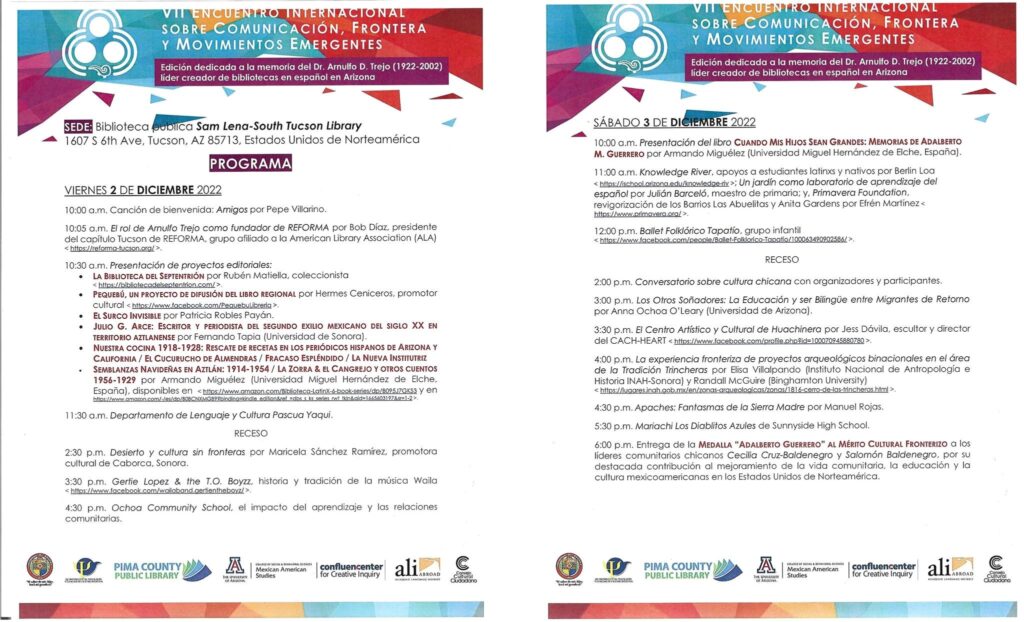
Here are some photos of the event:
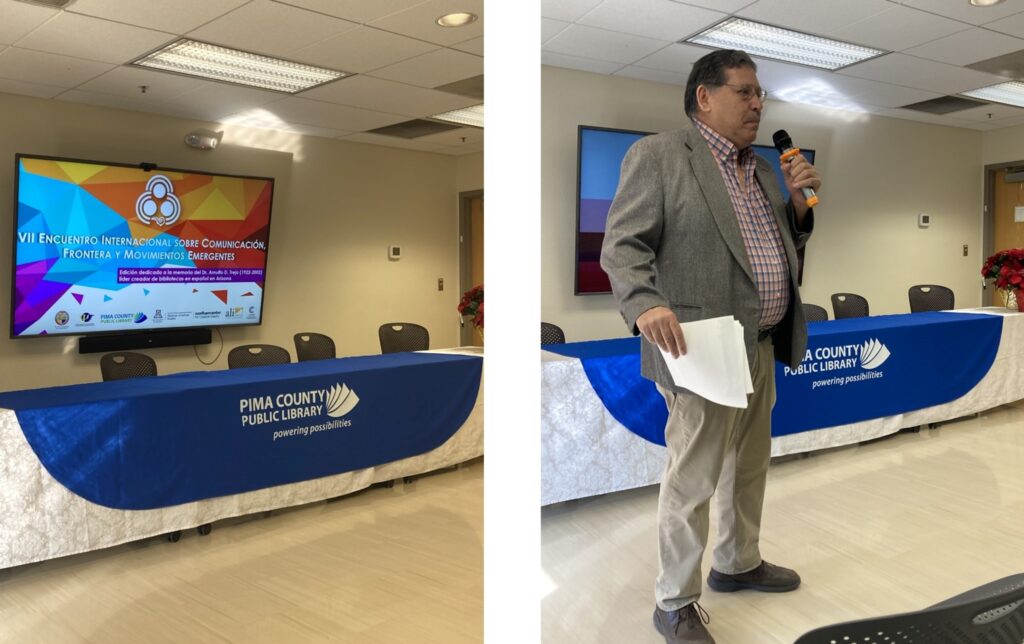
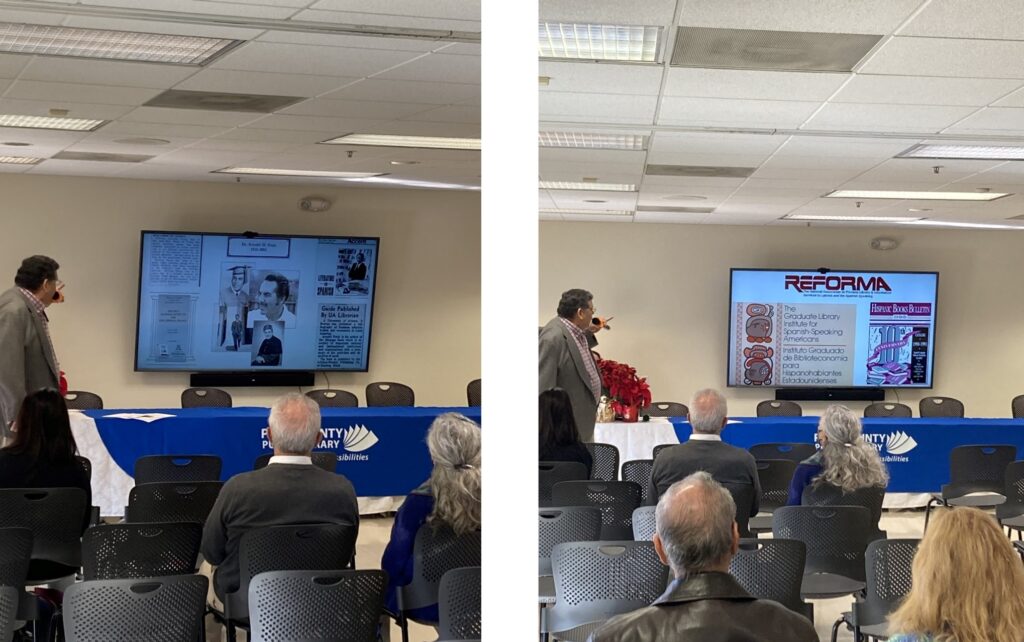
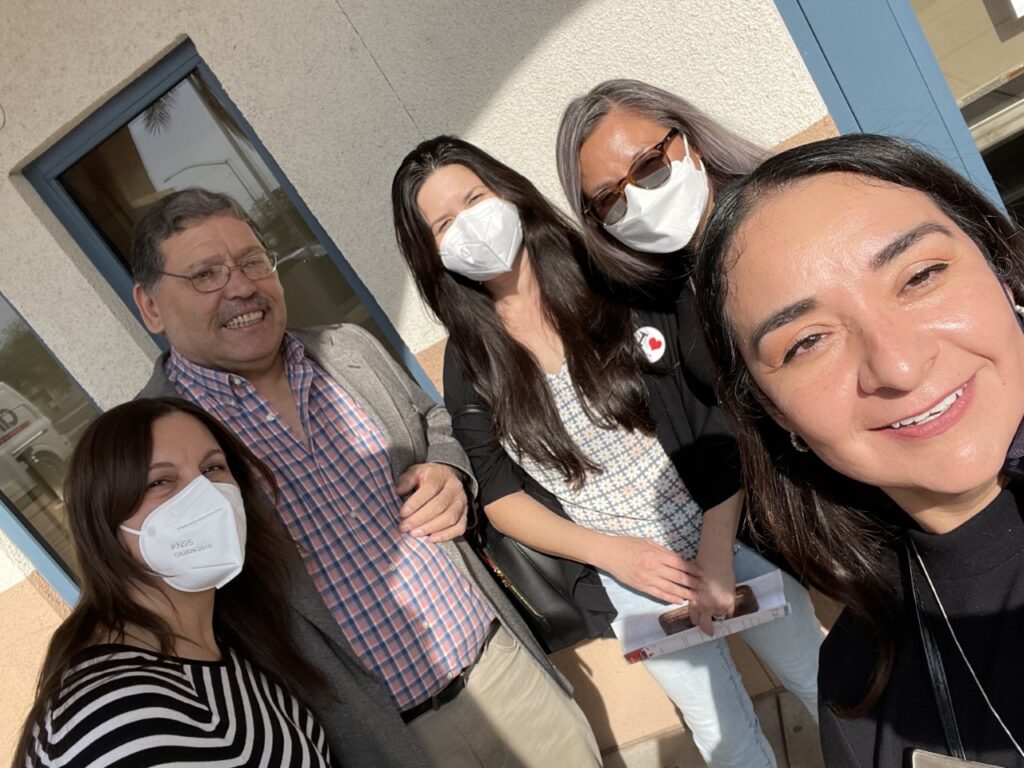
I opened my presentation with the following quote:
“According to Salvador Guerena and Edward Erazo, in their article, “Latinos and Librarianship“(source: Library Trends, V. 49, no. 1, Summer 2000), “of all the people who have contributed to Latino librarianship in this country, there is no one who has made a greater impact advancing this cause than Arnulfo D. Trejo, indisputably one of the country’s most illustrious and distinguished library leaders.”
I then presented the following slides, elaborating and adding context along the way:
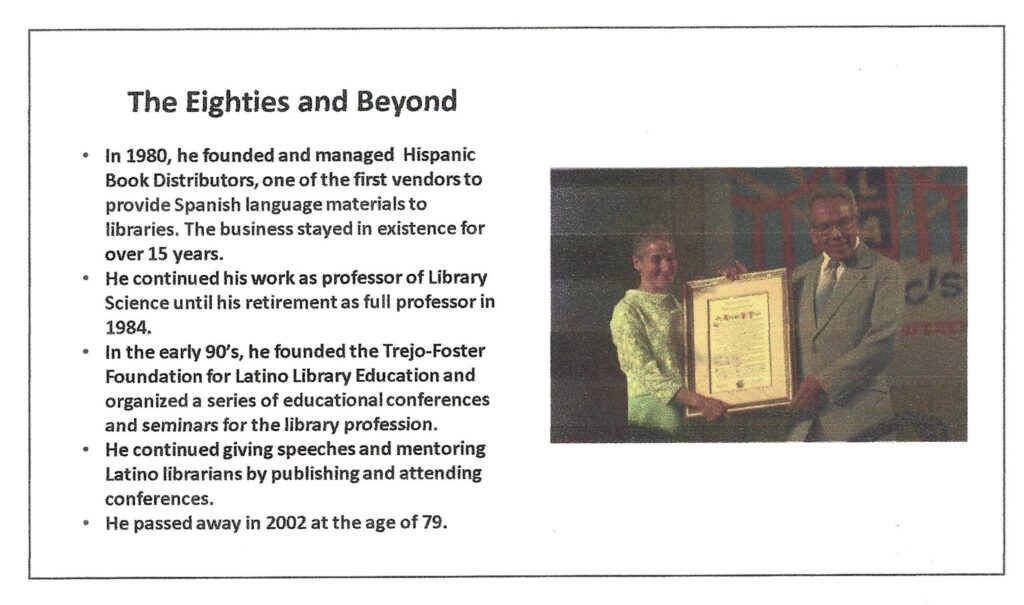
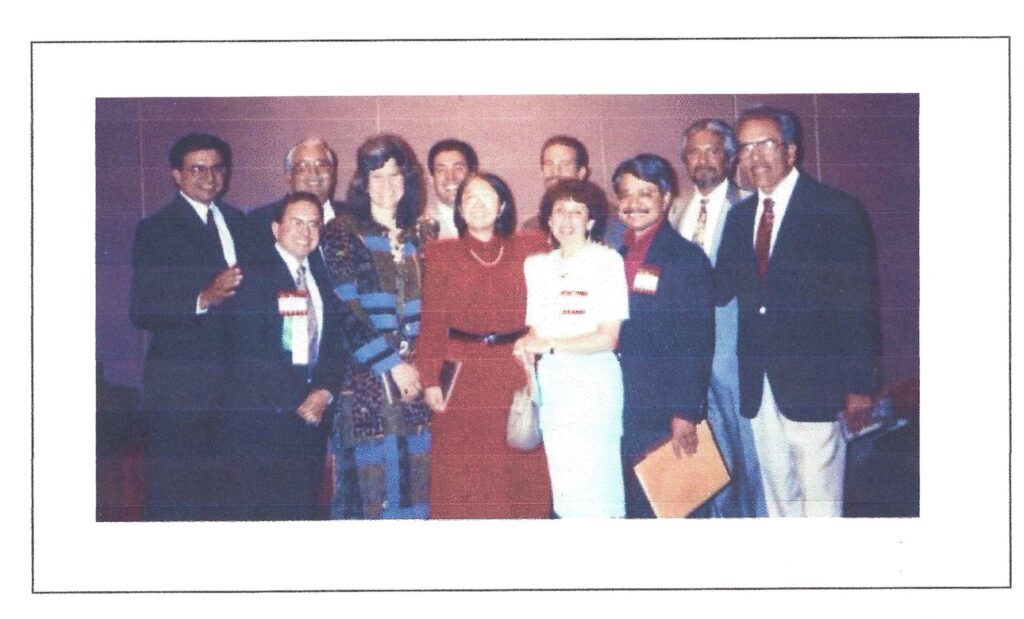
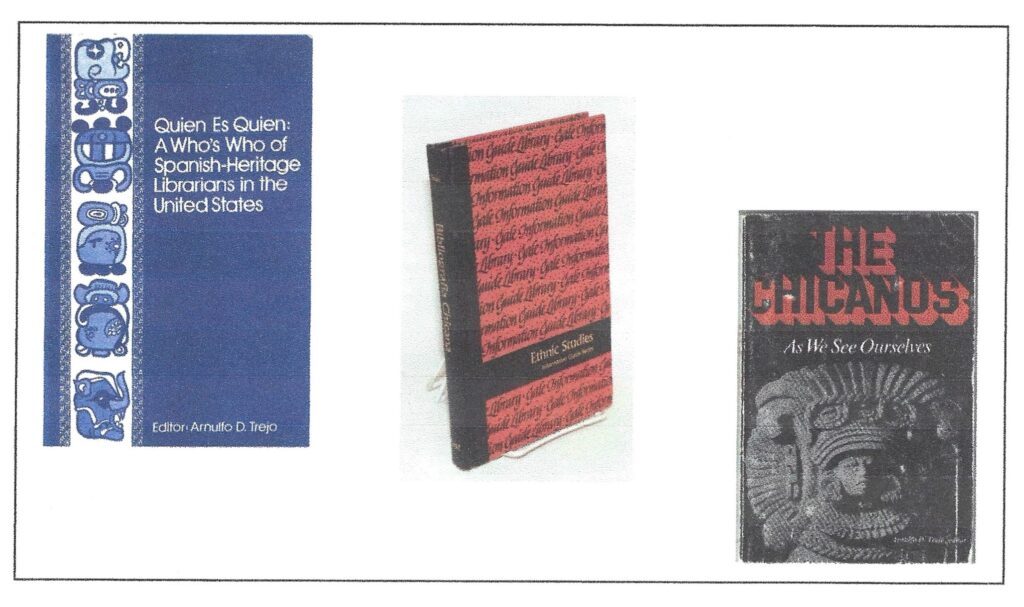
The following title, a work that Dr. Trejo edited, is available in full text online. See the page, The Chicanos: As We See Ourselves, and click on the download button to retrieve the full text of the book.
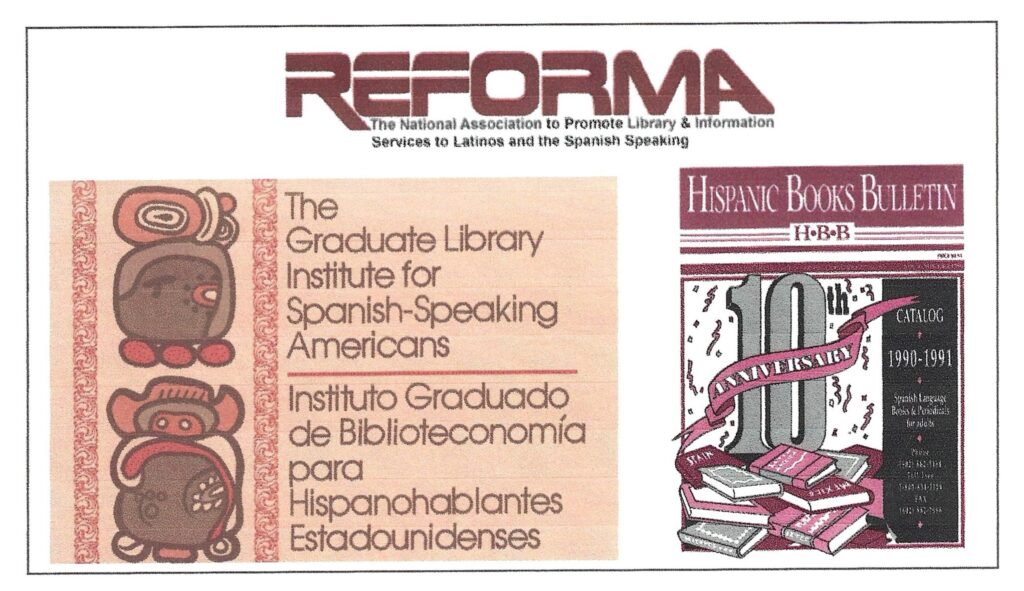
El Corrido de Don Arnulfo Trejo
by Bob Díaz
Voy a cantarles un corrido
De un hombre valiente y de verdad
Don Arnulfo Trejo se llamaba
y luchó para nuestra libertad
CORO:
Libertad pa’ ser Americano
Libertad pa’ hablar en Español.
Libertad pa’ ser educado
Libertad pa’ leer en Español.
Nació en México de veras
Pero a este lado su destino fue a quedar
Se creció en Tucson Arizona y desde joven luchó por la libertad
CORO:
Libertad pa’ ser Americano
Libertad pa’ hablar en Español.
Libertad pa’ ser educado
Libertad pa’ leer en Español.
Profesor y bibliotecario
Fue un hombre de grandísima vision
Padre de GLISSA y REFORMA
Le damos gracias por toda la nación
CORO:
Gracias Don Arnulfo Trejo
Gracias por su linda visión
Gracias Don Arnulfo Trejo
Gracias por su ardiente pasión
Vuela vuela palomita
Que ya se va acabando esta canción
Pero hay que siempre recordarse
¡La lucha continua, si señor!
¡La lucha continua, si señor!
==========================================================================
I’m very glad I was given the opportunity to do this program. It turned out to be another memorable occasion.
